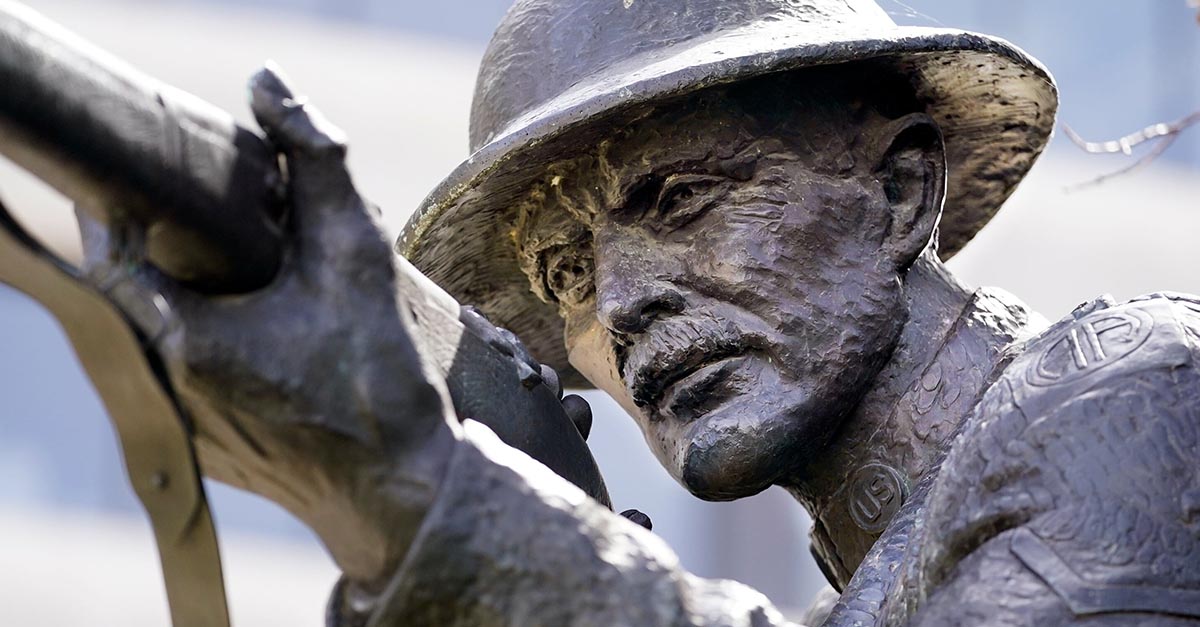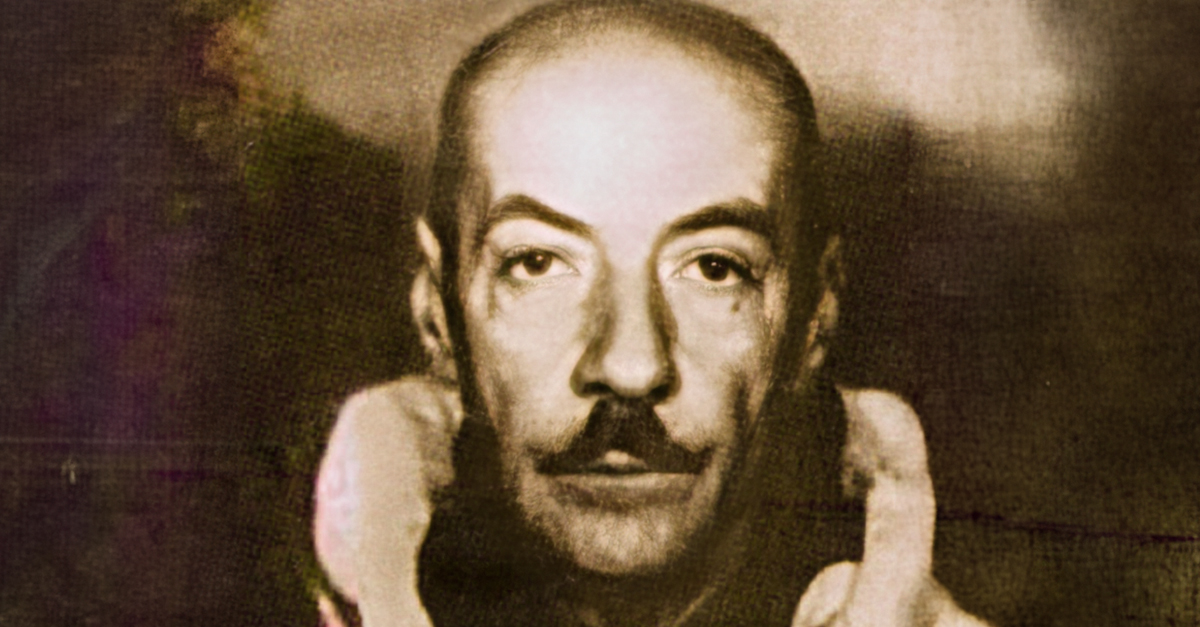The Man Who Fought For Freedom
Most accounts of Alvin York present a man who embodies his humble beginnings. The stories show him to be a simple mountain man who believed in faith, justice, and his country. As is often the case, the truth about the man is somewhere in the middle; he did believe in faith, justice, and his country, though that does not mean he didn’t have his flaws.
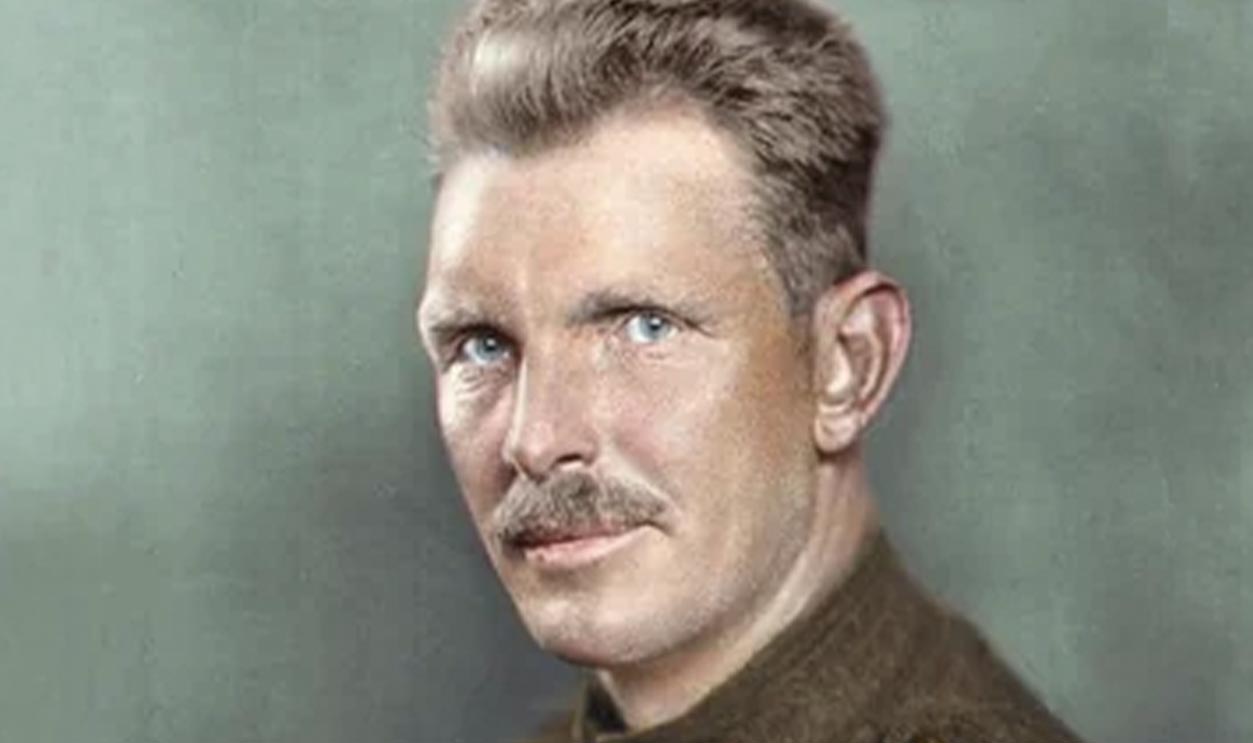
1. He Lived A Simple Life
Alvin York lived a life that few people in America can relate to today. Born at the end of 1887, he was the third child of William and Mary York. The Yorks would go on to have 11 children, all of which they raised in their two-room log cabin, in a part of rural Tennessee that is now known as the Pall Mall area. Sadly, York’s childhood bore little resemblance to a “childhood” at all.
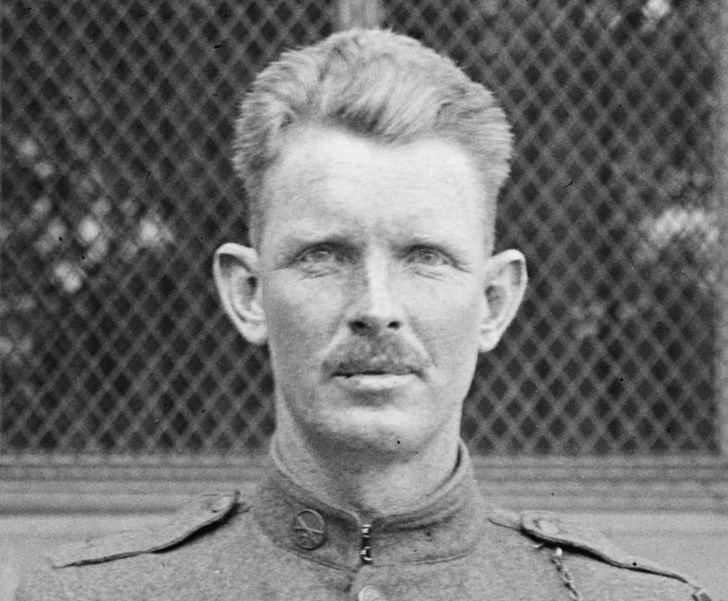 Harris & Ewing, Wikimedia Commons
Harris & Ewing, Wikimedia Commons
2. He Had No Money
Alvin York was raised in extreme poverty. Although he did attend school, it was only for a handful of months. His parents needed him and his brothers at home. York grew up farming, fishing, and hunting to support his family. To York, these things were simply part of everyday life; he had no idea that they would be the very skills to save his life and the lives of others.
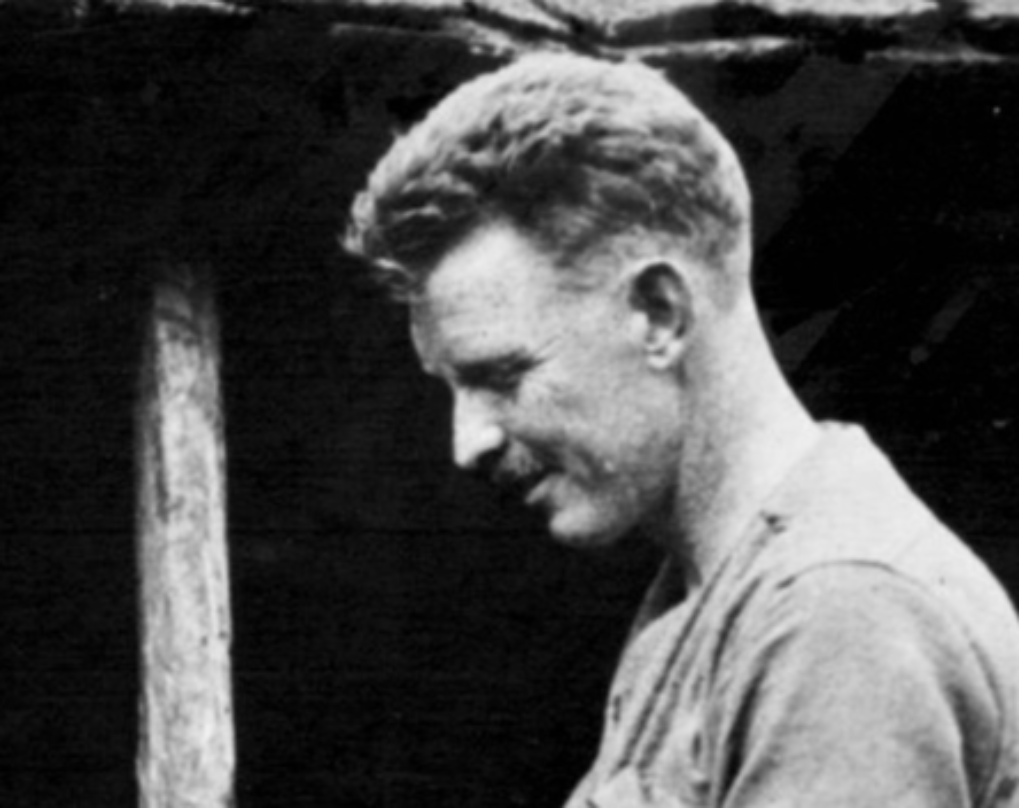 Underwood & Underwood, Wikimedia Commons
Underwood & Underwood, Wikimedia Commons
3. He Was The Head Of The Family
In November 1911, York’s father passed. His two elder brothers had married, leaving to start families of their own. So, at the age of 25, York became the main provider for his mother and remaining siblings. York doubled down on the work that he did for his family; reports state that he worked as a blacksmith, a logger, and in railroad construction to provide for his family. His sense of loyalty ran deep—and so did his vices.
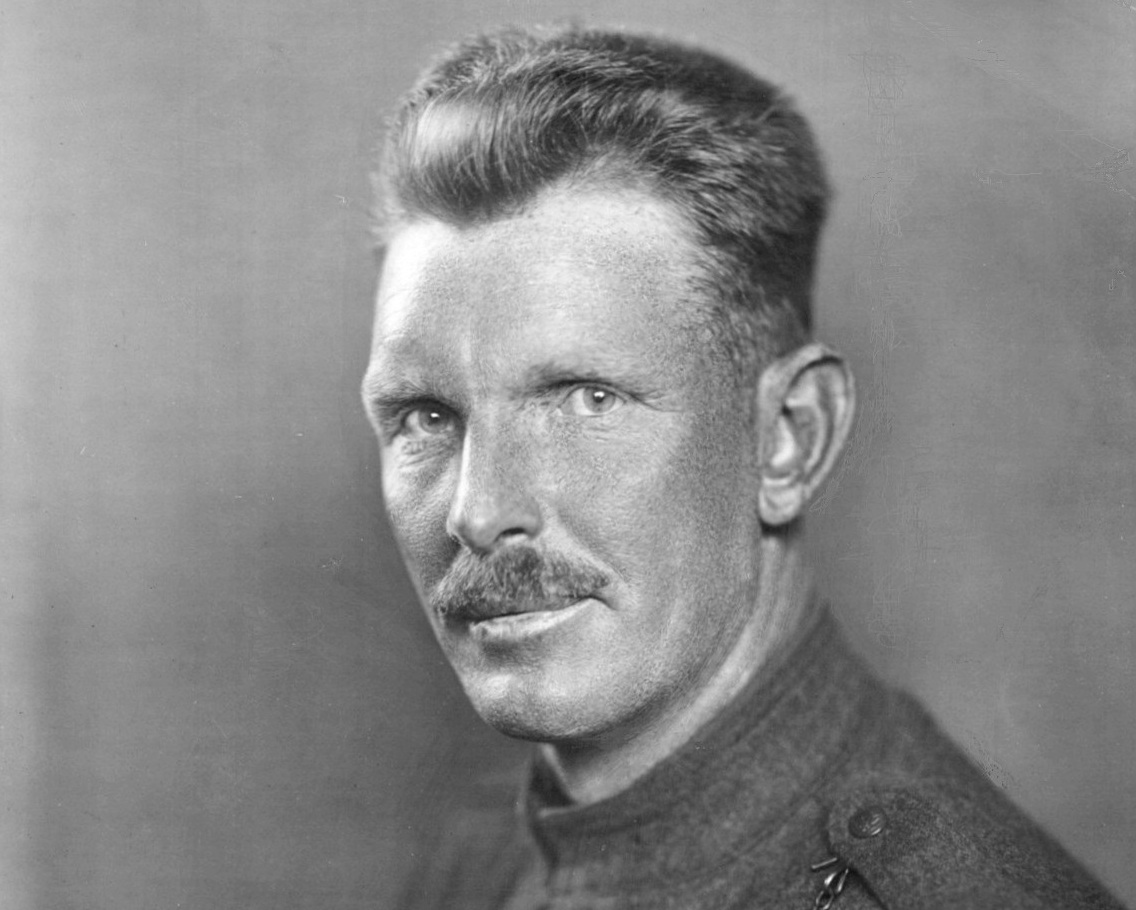 Underwood & Underwood, Wikimedia Commons
Underwood & Underwood, Wikimedia Commons
4. He Had A Dark Side
York was, by some reports, a “violent alcoholic”. When you spent all week working hard for the sake of your family, it only made sense that you filled your weekend with a little drink. However, for York, “little” was not in his vocabulary. He drank a lot, and he got in fights. These fights went so far that at one point, his best friend didn’t survive one. York needed a change to avoid a similar fate.
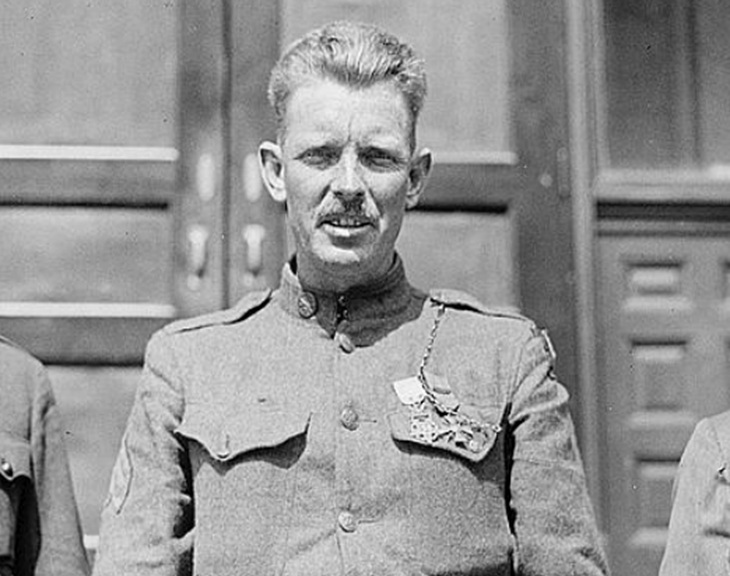 Unknown Author, Wikimedia Commons
Unknown Author, Wikimedia Commons
5. He Didn’t Value Faith
Church was a regular fixture in York’s life from a young age. However, for many years, people could question the authenticity of York’s devotion. He may have led hymn singing, but he also claimed to have attended church as it gave him a chance to flirt with his favorite girl. He might have continued in that mind set if it weren’t for a fateful meeting as 1914 came to a close.
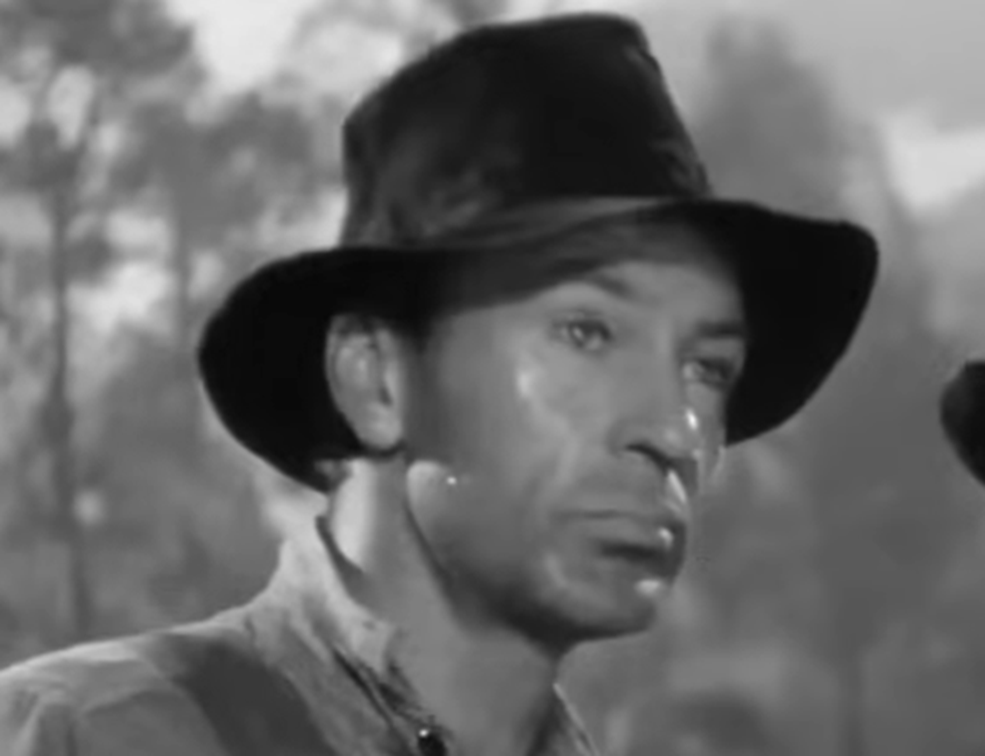 Warner Bros., Sergeant York (1941)
Warner Bros., Sergeant York (1941)
6. He Found A Savior
York attended a revival meeting in January of 1915 that changed his life forever. The visiting preacher spoke with such conviction that for York, he felt as if “lightening struck his soul”. He changed his entire life, replacing drink and fights for sermons. He even became an assistant pastor. However, something else was rolling across Europe, closer and closer to the USA.
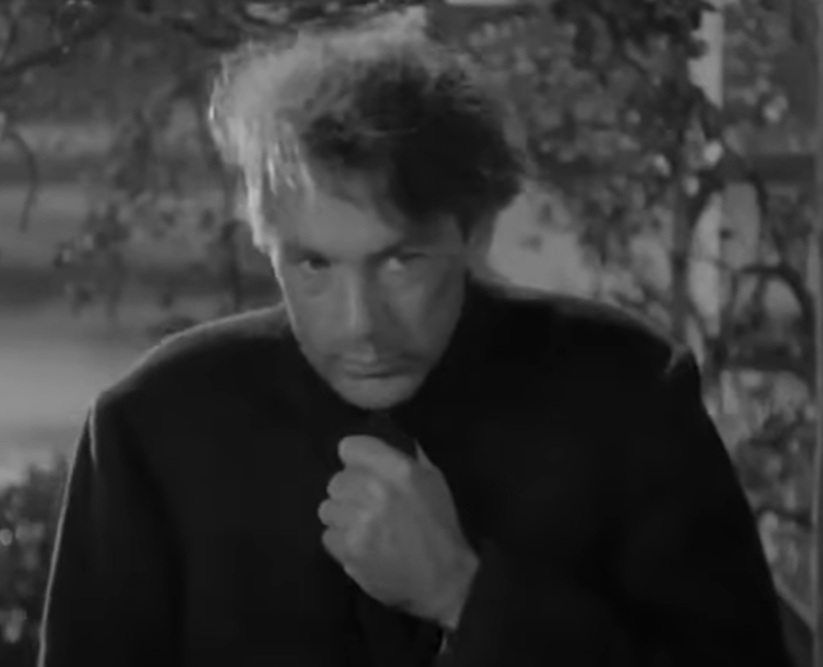 Warner Bros., Sergeant York (1941)
Warner Bros., Sergeant York (1941)
7. He Feared The Conflict
For most of the world, WWI started in July 1914. However, the United States avoided the conflict for some time longer. York managed to enjoy two years of faith and peace before the United States declared war on Germany in April 1917. York had left conflict in his past; in his words, “I didn’t want to go and kill. I believed in my Bible”. Unfortunately, York didn’t have a choice.
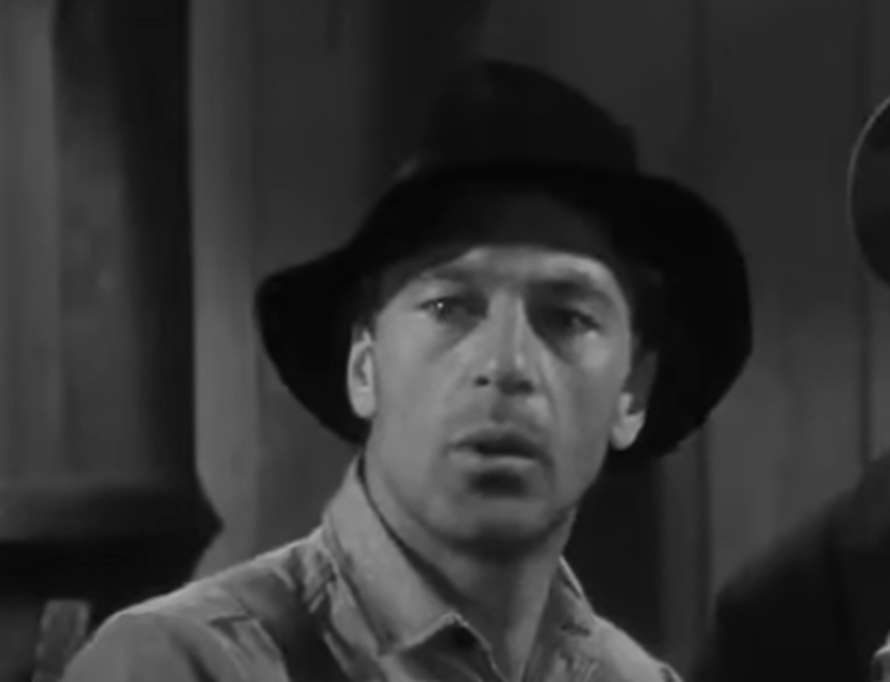 Warner Bros., Sergeant York (1941)
Warner Bros., Sergeant York (1941)
8. He Was Forced Into Service
Following the declaration against Germany, President Woodrow Wilson signed the “Selective Draft Act” into law in May 1917. This required all men aged 21 to 30 to register for the draft. Alvin York was 29. On June 5, 1917, York registered, though against his will. When asked if he claimed exemption from the draft, York wrote: “Yes. Don’t Want To Fight”. York had made himself clear, unfortunately it didn’t matter.
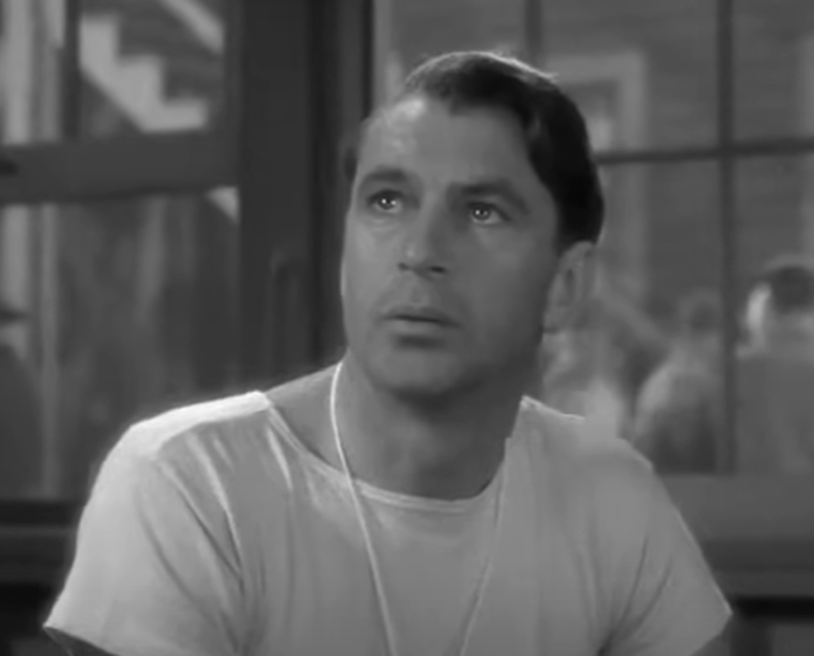 Warner Bros., Sergeant York (1941)
Warner Bros., Sergeant York (1941)

History's most fascinating stories and darkest secrets, delivered to your inbox daily.
9. He Tried To Avoid His Fate
Although York was very clear about his desires, not wanting to fight did not equate to a reason to be exempt from fighting in the eyes of the United States government. They denied his attempt to be a conscientious objector and freed from the draft. York appealed. However, sources disagree on happened next.
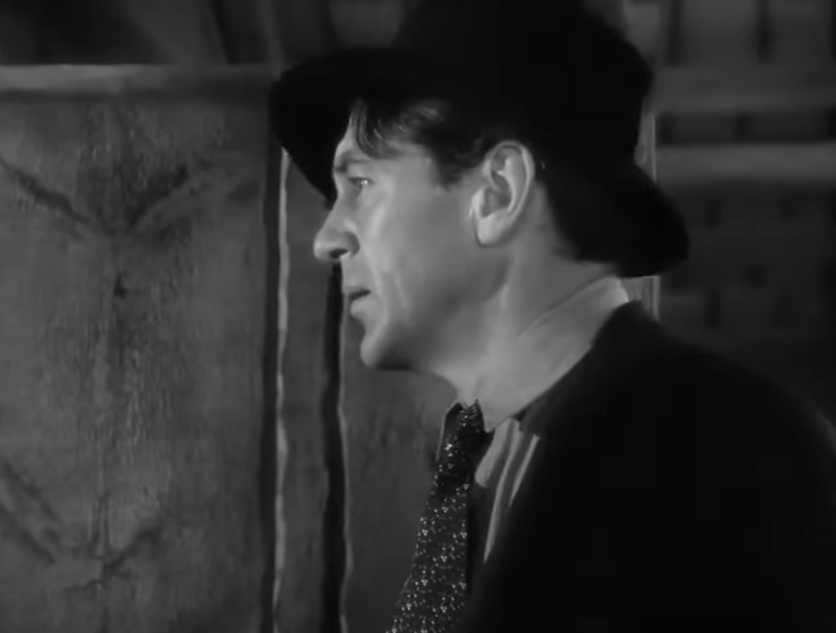 Warner Bros., Sergeant York (1941)
Warner Bros., Sergeant York (1941)
10. He Tells Two Stories
Despite York’s initial draft form existing, and a record of York filling out a form to be a conscientious objector, York told a different story. In a diary that he kept during the conflict, York stated that both his pastor and mother attempted to get him exempt from the draft, but York himself never signed those. In later years, he would go on to deny having ever wanted to “dodge draft”. His story may have changed, but the results remain the same.
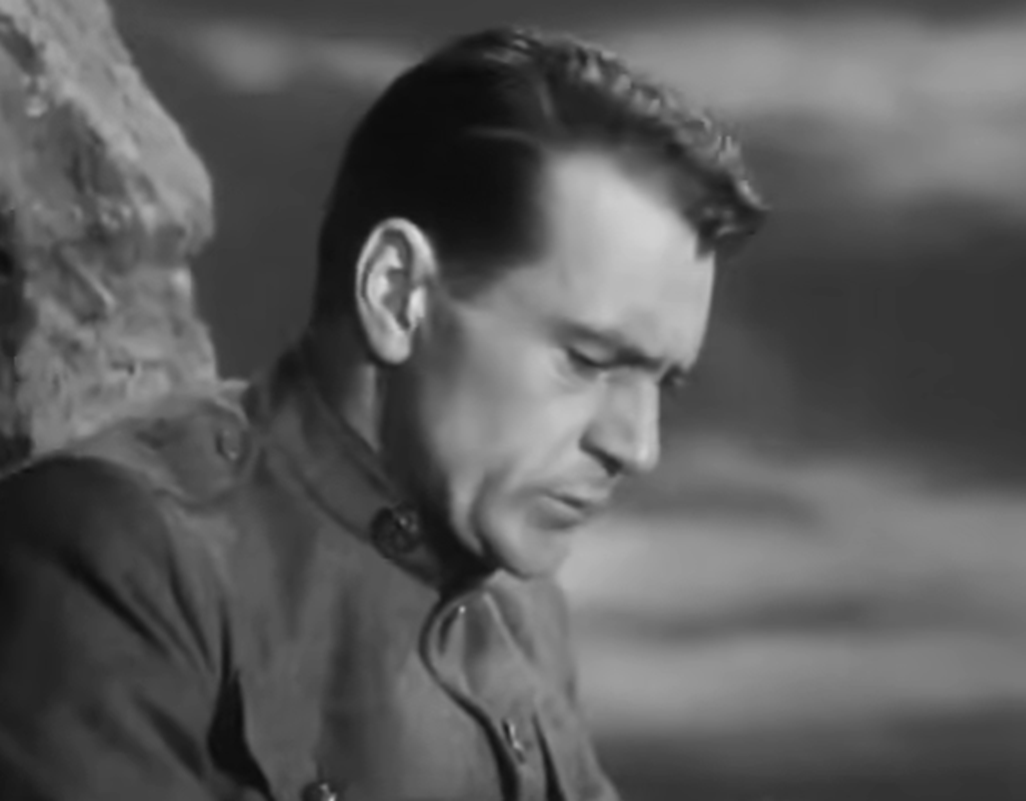 Warner Bros., Sergeant York (1941)
Warner Bros., Sergeant York (1941)
11. He Consulted His Superiors
Regardless, York found himself in service and ended up at the training camp in Atlanta, Georgia, Camp Gordon. However, he was still troubled. He had made a vow of pacifism which the conflict seemed to go directly against. It was a conversation with two superior officers at Camp Gordon that changed how York viewed himself, the battle, and his faith.
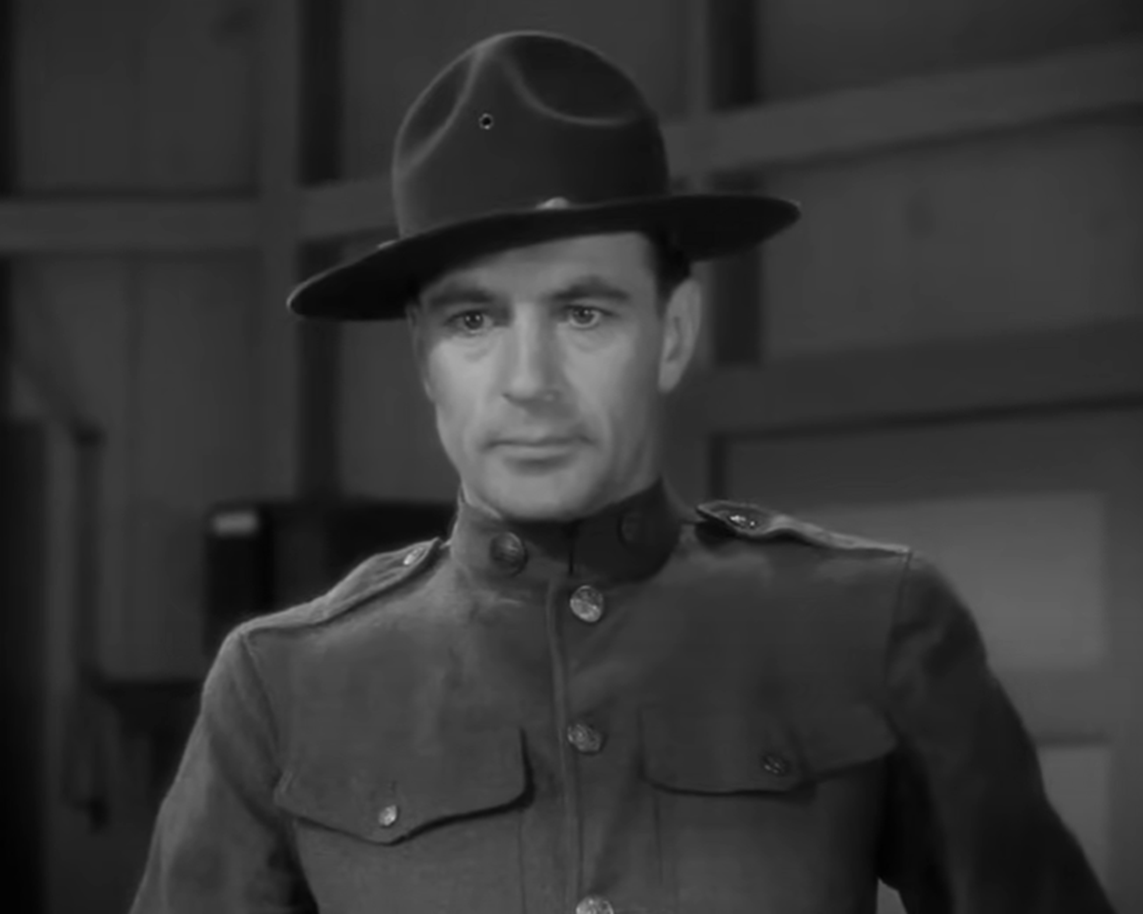 Warner Bros., Sergeant York (1941)
Warner Bros., Sergeant York (1941)
12. He Changed His Views
The two officers were Captain Edward Courtney Bullock Danforth Jr and Major G Edward Buxton. These two men also had their faith to contend with, and they shared their views with York. They cited the bible, showing that it mentioned aggression, encouraged it even for a right cause. York changed his stance; he felt that God wanted him to fight, and because of that, he would be safe. Whether it was God or luck, something kept certainly York safe.
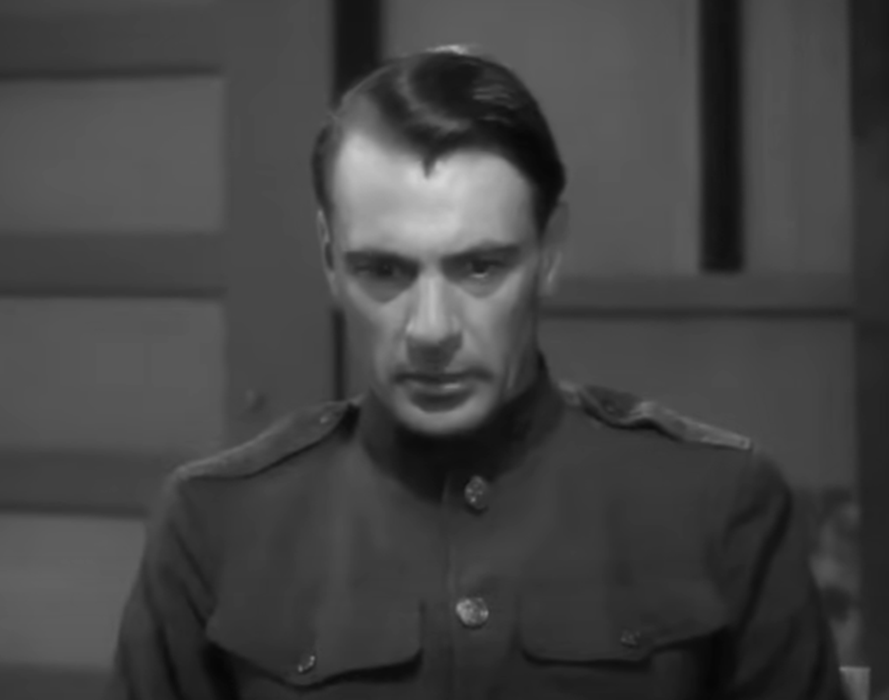 Warner Bros., Sergeant York (1941)
Warner Bros., Sergeant York (1941)
13. He Went To The Front
York's long battle to avoid the conflict ended in June 1918, when he arrived in France. He, along with his unit, quickly found themselves at the front, fighting in the largest American operation of WWI, the Meuse-Argonne Offensive. This offensive lasted until the armistice and could have been quite different if it were not for Alvin York.
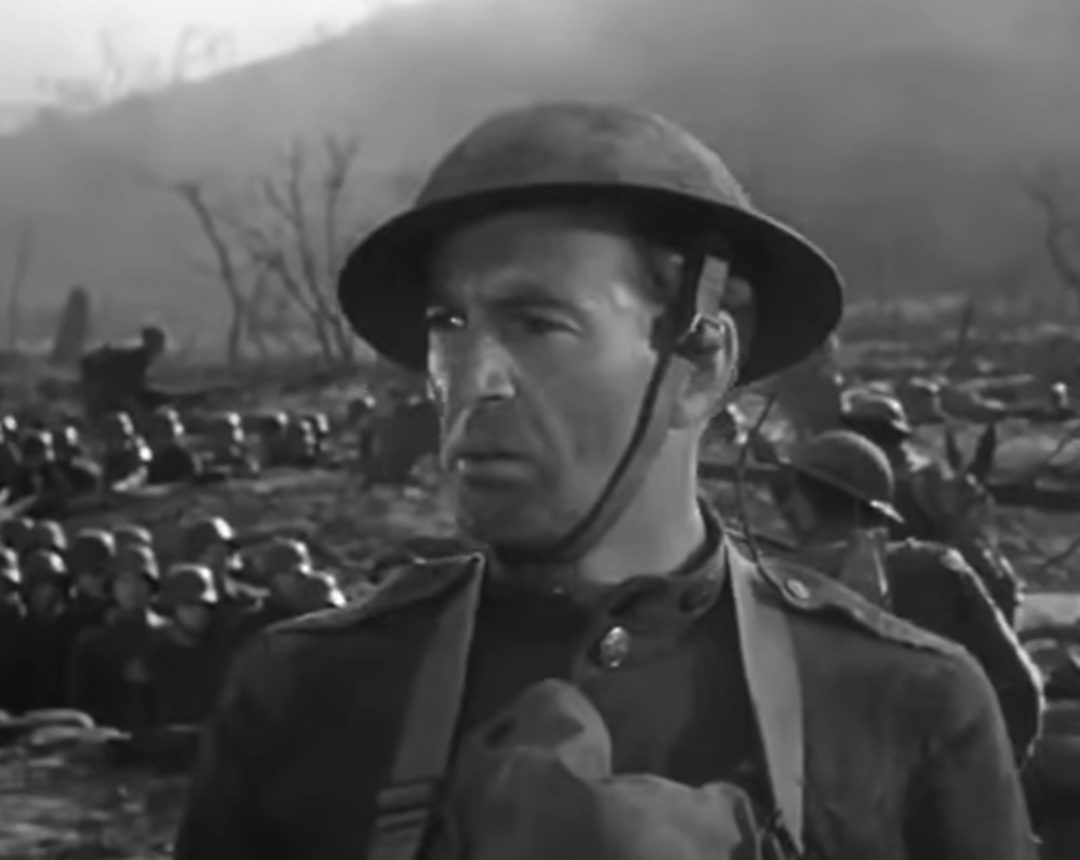 Warner Bros., Sergeant York (1941)
Warner Bros., Sergeant York (1941)
14. He Had A Problem
It was October 8, 1918. York had been on the front for five months, and although they had been involved in their share of skirmishes, this was his unit’s first taste of a true offensive battle. The goal was to take the Decauville Railroad. The problem was that the Germans had held the area for a long time; they were skirmishing on “home turf”, and it looked to be a losing battle.
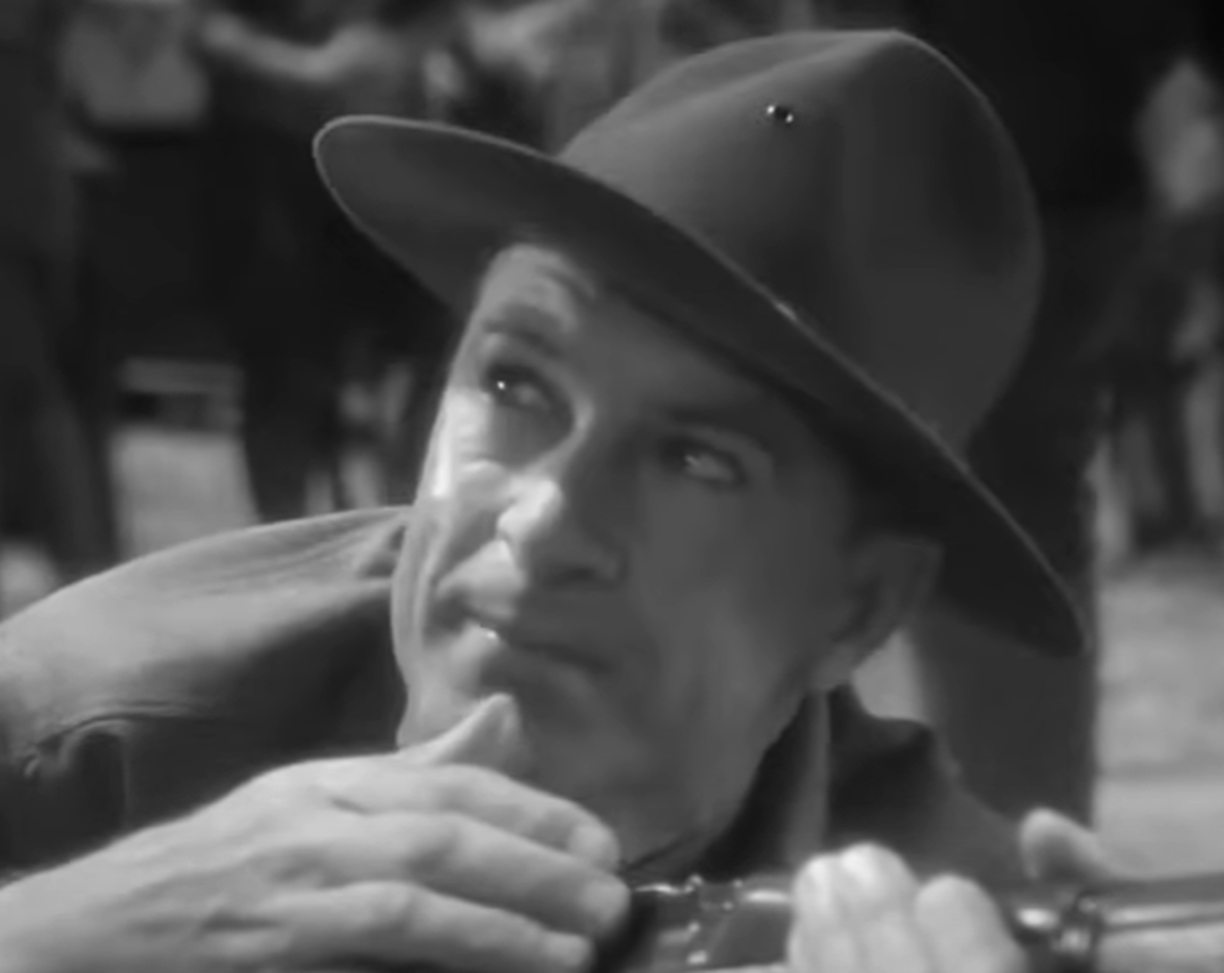 Warner Bros., Sergeant York (1941)
Warner Bros., Sergeant York (1941)
15. He Was Trapped
The Germans held “Hill 223”, a large ridge that gave them a distinct tactical advantage. They were positioned above the advancing forces, with a nest of machine guns that were not missing their marks. They couldn’t tell where enemy fire was coming from, but it hit its mark. York recalled, “Our boys just went down like the long grass before the mowing machine at home”. York and his forces were trapped.
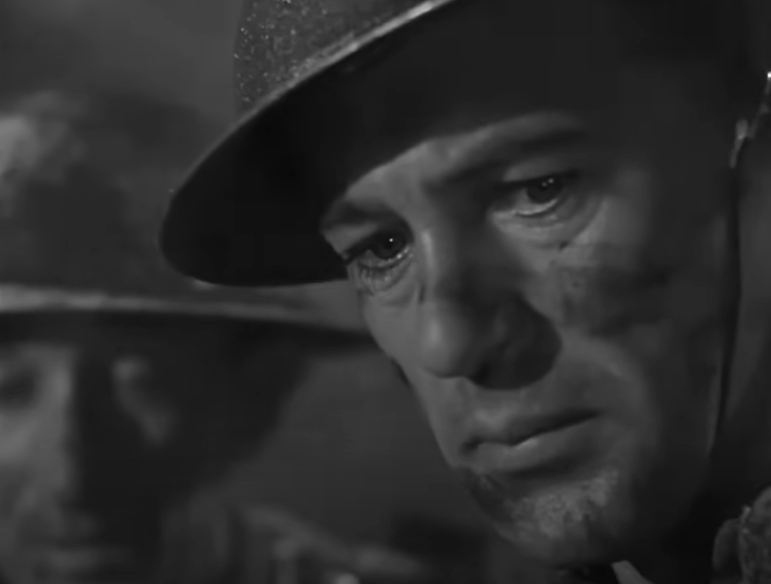 Warner Bros., Sergeant York (1941)
Warner Bros., Sergeant York (1941)
16. He Drew The Short Straw
It seemed that the Allied forces were in an impossible position. There were only two options—lay on the ground and wait for Germans to picked them off one by one, or attempt the impossible: take out those guns. Sergeant Harry Parsons, now in charge, made the call. They would send out a group of men to capture the hill and cease the fire. York was one of those men.
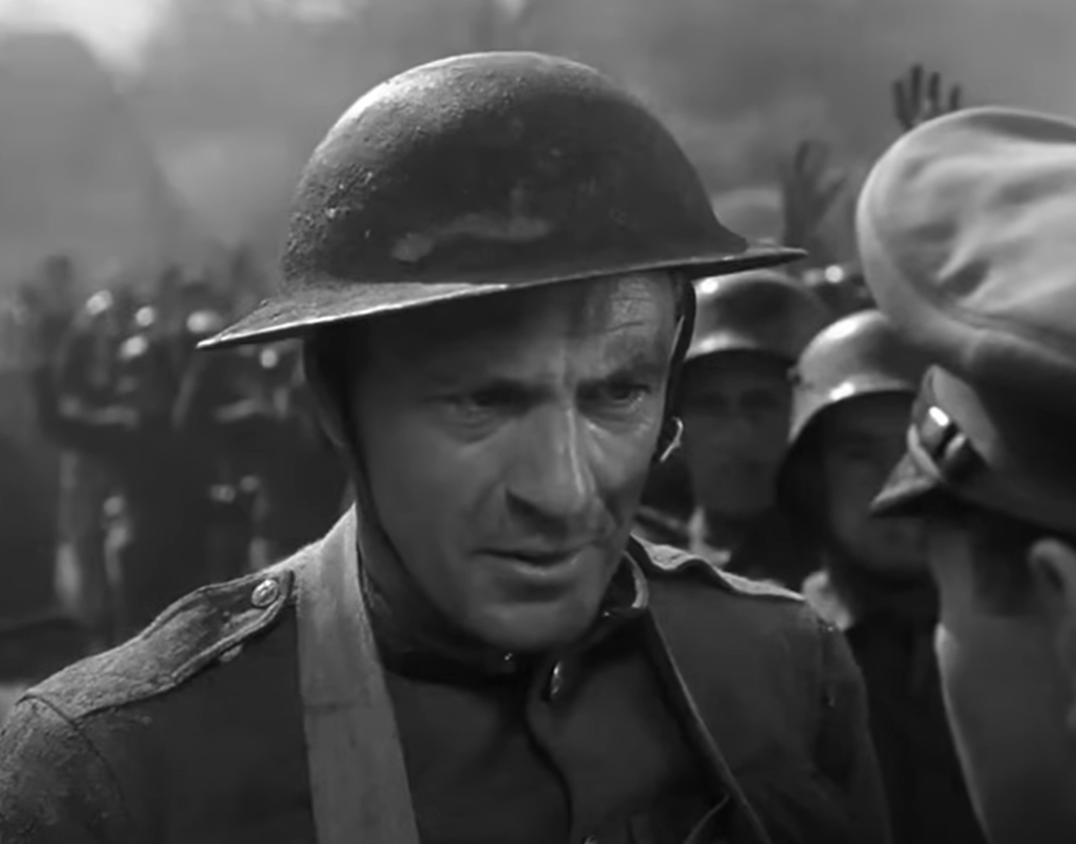 Warner Bros., Sergeant York (1941)
Warner Bros., Sergeant York (1941)
17. He Went Behind Enemy Lines
17 men in total set out from the relative safety of their line, heading towards the danger of German fire. York was one of three Corporals under the command of Sergeant Early who set out on this seemingly doomed mission. As they crept through the early morning fog, they were left wondering if they were heading toward success or danger.
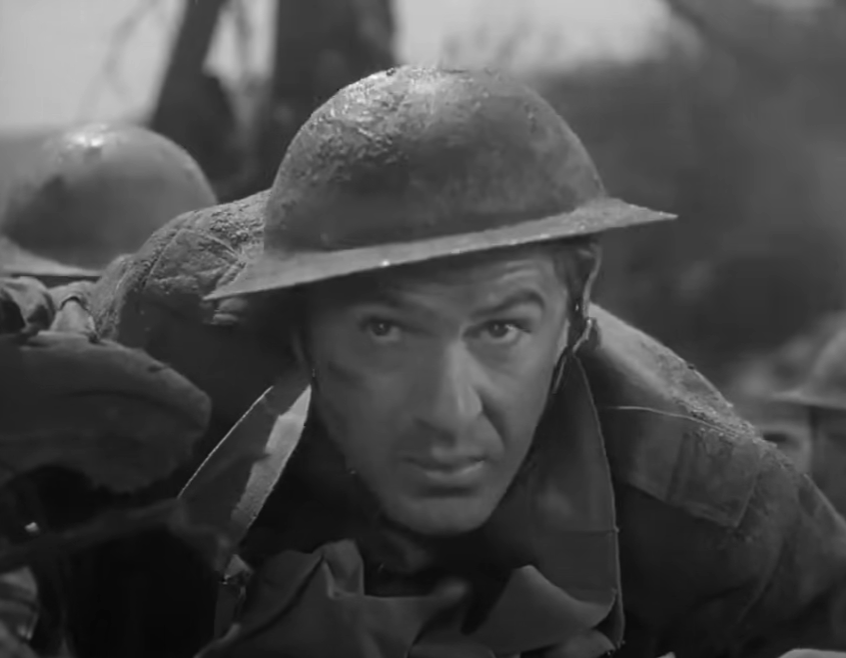 Warner Bros., Sergeant York (1941)
Warner Bros., Sergeant York (1941)
18. They Captured The Enemy
Although one report claims that the group ended up behind enemy lines by accident due to misreading a French map, most reports seem to suggest that this was part of the plan. York and his group crept around the lines to capture the Germans from behind. After a brief skirmish, they succeed in capturing a group of German soldiers—or so they thought.
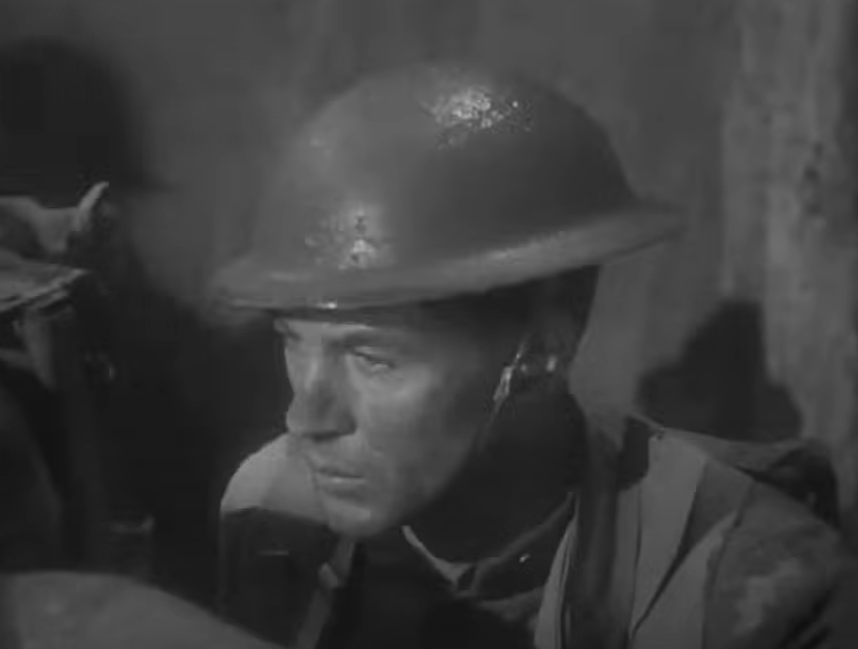 Warner Bros., Sergeant York (1941)
Warner Bros., Sergeant York (1941)
19. They Were Spotted
What seemed like a successful mission quickly went south when the captured Germans began to yell for help, drawing attention to their companions, attention that meant one thing: more fire from the enemy. York recalled, “Those machine guns were spitting fire and cutting down the undergrowth all around me something awful. And the Germans were yelling orders. You never heard such a racket in all of your life”. There was nothing left to do but fight.
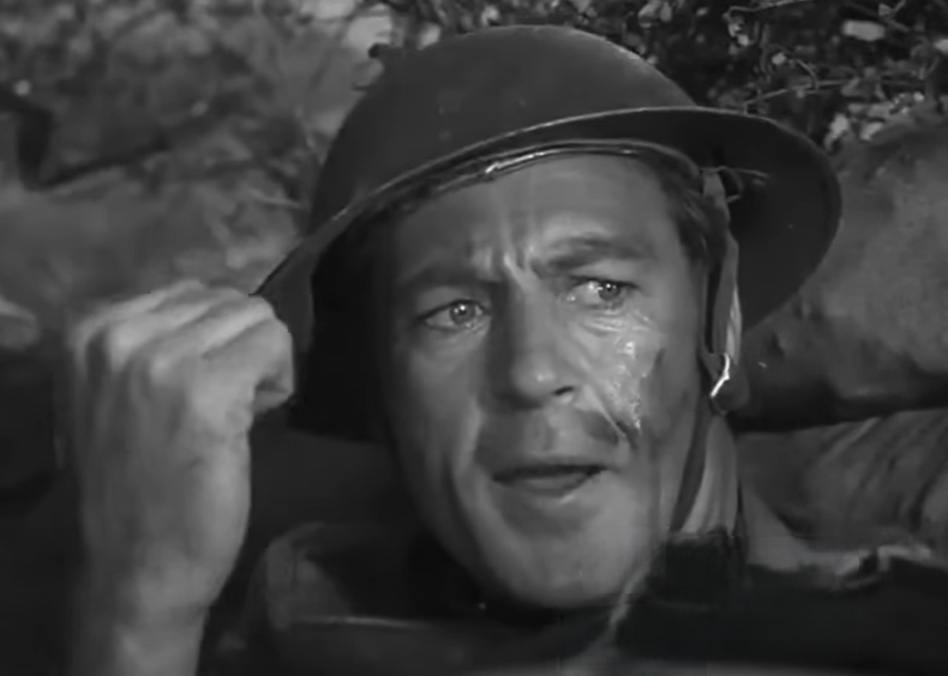 Warner Bros., Sergeant York (1941)
Warner Bros., Sergeant York (1941)
20. He Didn’t Waste Time
The consequences of this attack were immediate. Anywhere from six to nine of the 17 men that had been sent up there were hit immediately, injured or perished—among them, all three of York’s fellow commanding officers. York didn’t have time to waste: “As soon as the machine guns opened fire on me, I began to exchange shots with them”. He took charge.
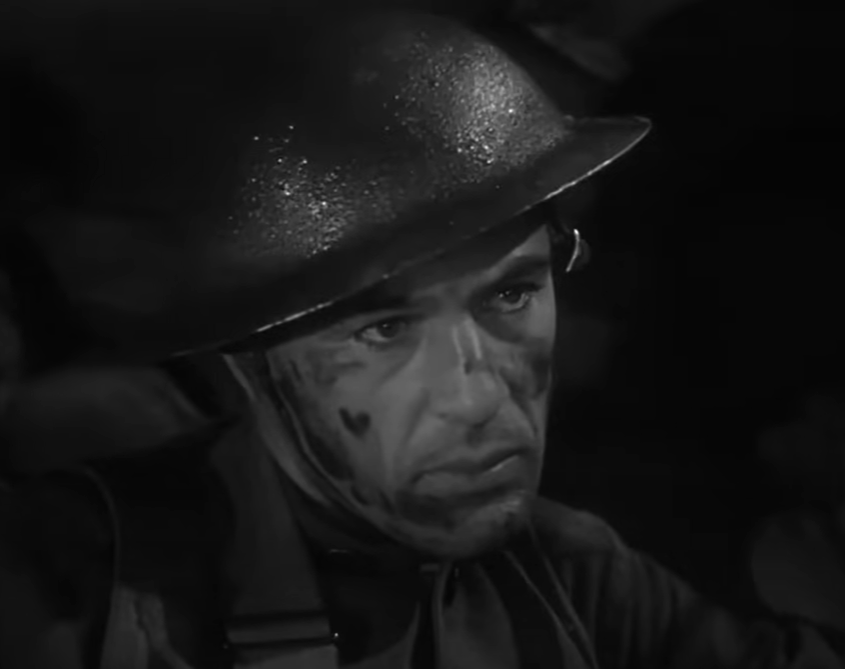 Warner Bros., Sergeant York (1941)
Warner Bros., Sergeant York (1941)
21. He Took Charge
Unlike some of his fellow officers, York had grown up depending on his skills to survive. He had learned how to hunt in the mountains of Tennessee, and it was that marksmanship that he depended on now. He worked his way towards the fire, taking out anyone that happened to get in his way, even though that was the last thing that he wanted to do.
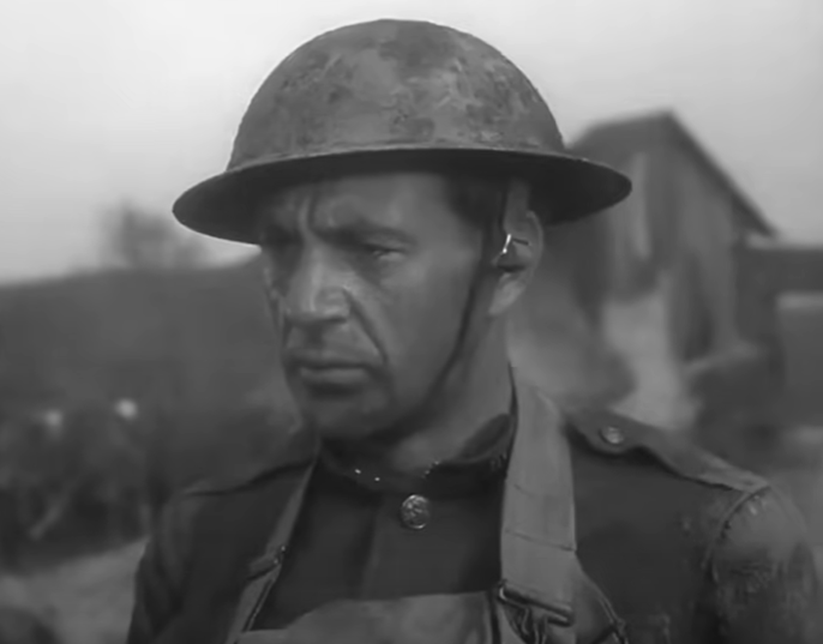 Warner Bros., Sergeant York (1941)
Warner Bros., Sergeant York (1941)
22. He Tried To Spare Lives
York had resigned himself to the realities of battle. He understood that his passivist beliefs could not remain. Still, he tried to spare as many lives as he could. Even as he shot his way through the enemies, he was yelling for them to get down. “I didn't want to kill any more than I had to”. Still, York understood it was them or him, and they weren’t going to spare him without a fight.
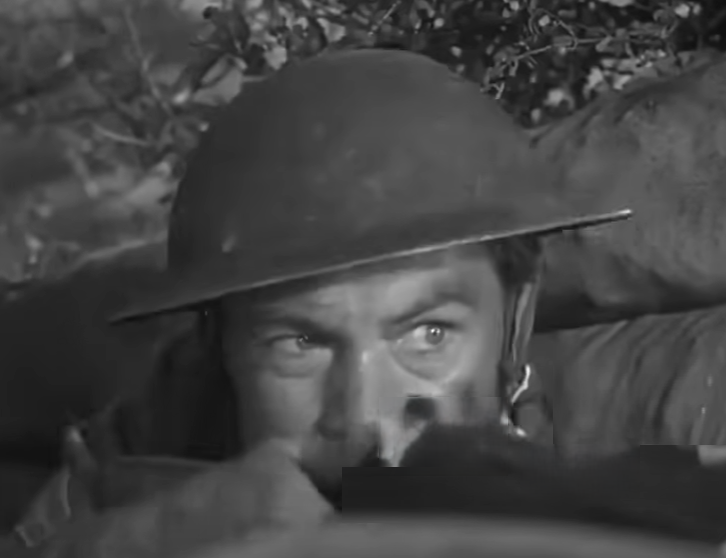 Warner Bros., Sergeant York (1941)
Warner Bros., Sergeant York (1941)
23. He Gave It His All
It seems impossible to imagine now, but York gained ground on the German guns. Moving with an unnatural calm, York was almost at his destination when he was rushed by a group of Germans. York did not cease his attack on the machine guns. The story goes that the German commander unloaded his pistol but never hit York with a single shot. The commander knew when he’d been beaten. He surrendered on the spot.
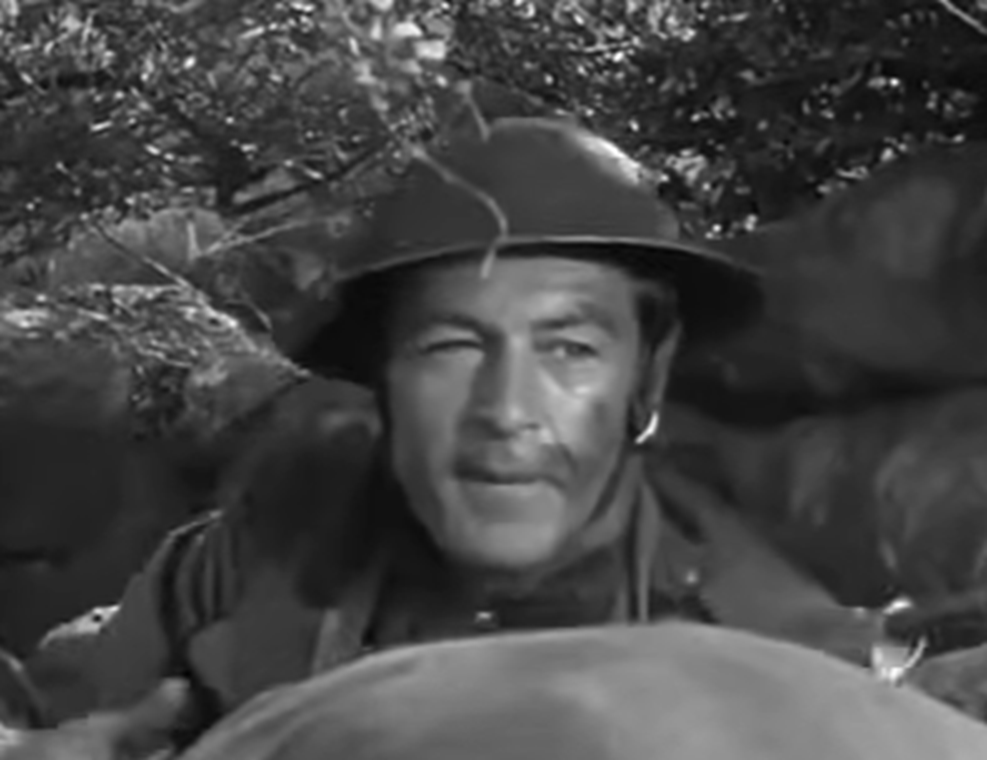 Warner Bros., Sergeant York (1941)
Warner Bros., Sergeant York (1941)
24. He Made An Entrance
The men York left behind had no idea what was happening across the way at enemy lines. Perhaps they tried to follow the sound of fire, making guesses about the fate of their companions, but they had only their imagination. That was until York and his seven remaining men came back across the divide, leading over 100 captured Germans. York achieved the impossible.
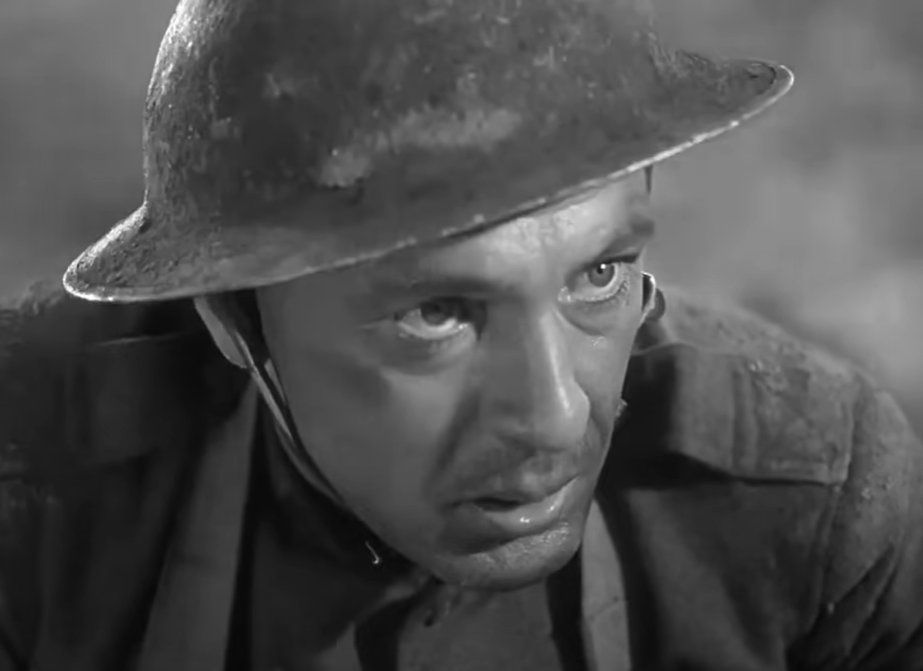 Warner Bros., Sergeant York (1941)
Warner Bros., Sergeant York (1941)
25. He Was Humble
The reports on what exactly York achieved vary, as often happens during conflict. He has been credited with slaying 25 Germans, capturing 132 men and several guns. He reported to his commanding officer, Brigadier General Julian Robert Lindsey, who greeted him with, “Well York, I hear you have captured the whole German Army”. To which York replied, “No sir. I got only 132”. That was enough to set York apart.
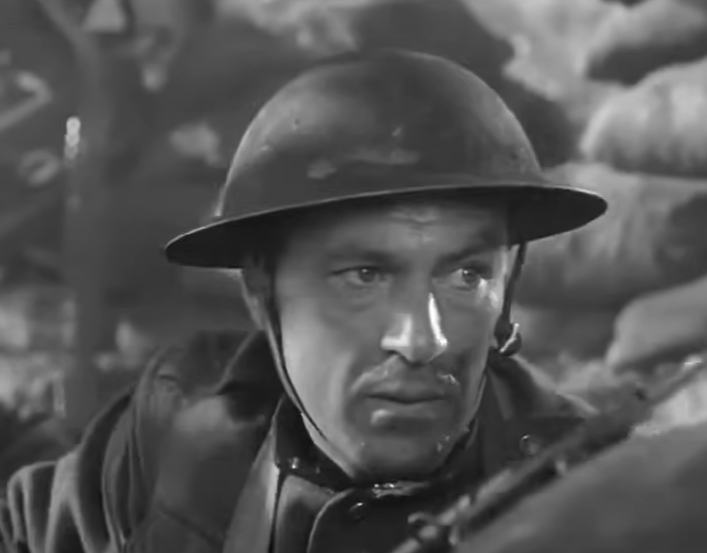 Warner Bros., Sergeant York (1941)
Warner Bros., Sergeant York (1941)
26. He Got Immediate Recognition
The recognition for York’s actions that day was immediate. They promoted him to sergeant, and he received the Distinguished Service Cross, the second highest fighting distinction for heroics in combat. However, it was not long before that was felt not to be enough. They wanted to give York the highest distinction, the Medal of Honor—but first, York had to prove he earned it.
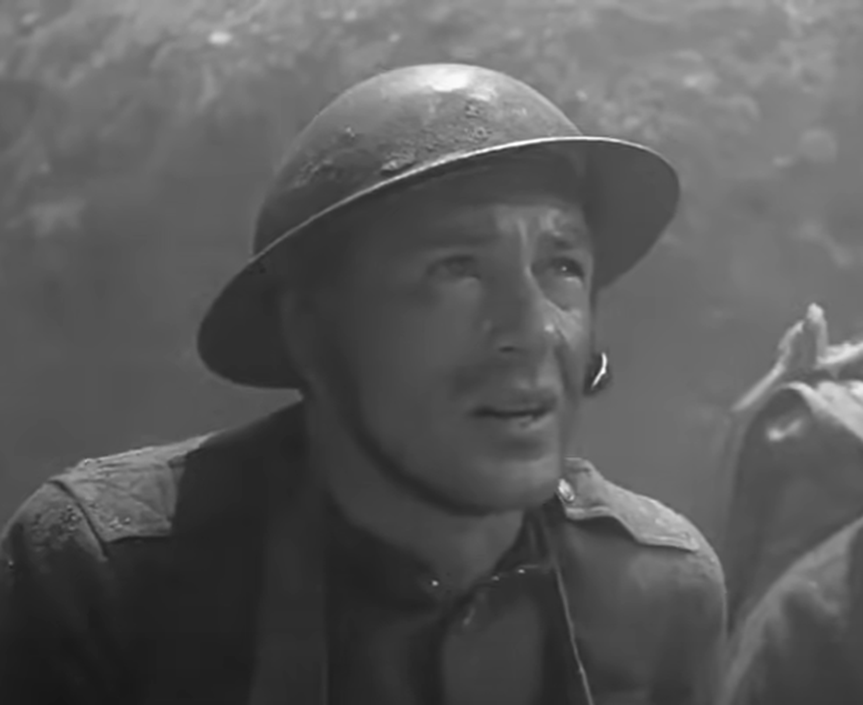 Warner Bros., Sergeant York (1941)
Warner Bros., Sergeant York (1941)
27. He Was Questioned
If you feel that this story seems unbelievable, then you are not the only one. There was some question, even at the time, over how one man could have taken on so many Germans and come out as successfully as York did. In February 1919, they summoned York back to the ravine he had climbed, to assess whether his actions had truly earned him the Medal of Honor.
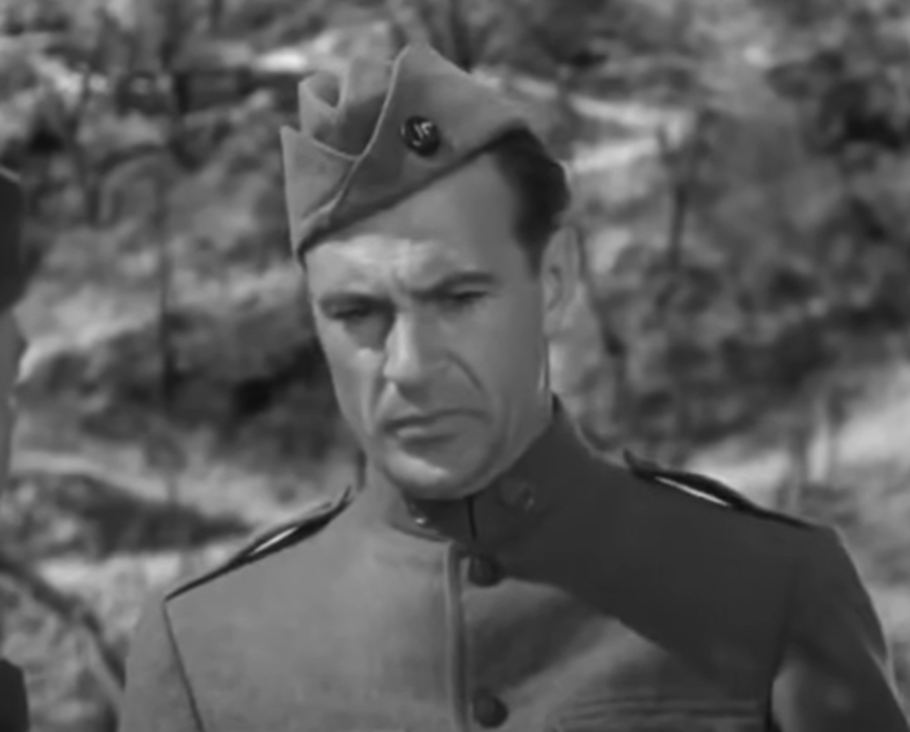 Warner Bros., Sergeant York (1941)
Warner Bros., Sergeant York (1941)
28. He Believed In A Higher Power
York returned to the scene of his great success a few months later with his commanding officer, General Lindsey, and other officers to retrace his steps that fateful day. As they were walking around, recounting the story, General Lindsey could not contain his wonder. He asked York how he did it. York told him, “A higher power than man guided and watched over me and told me what to do”. This belief in faith guiding him would continue throughout York’s life.
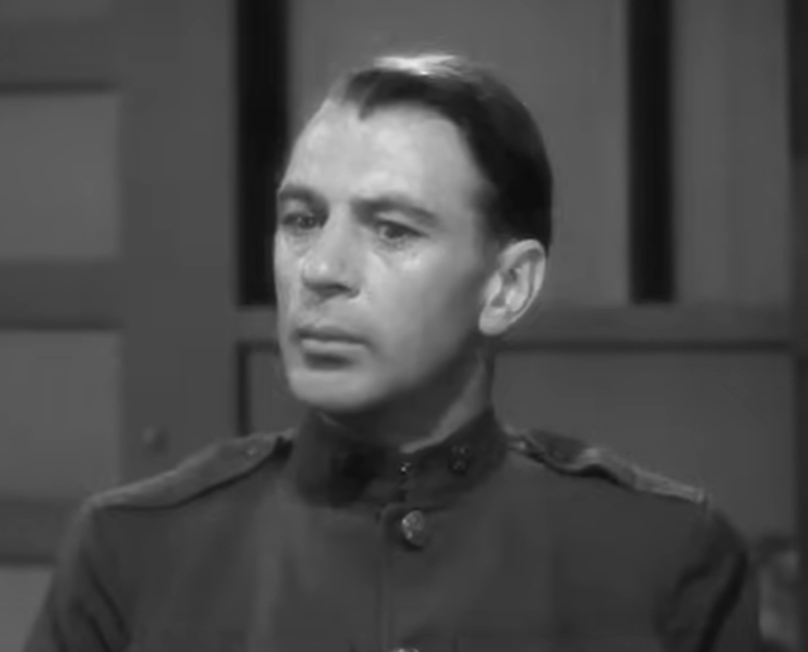 Warner Bros., Sergeant York (1941)
Warner Bros., Sergeant York (1941)
29. He Was Awarded
Whether it was a higher power that was guiding York, or merely his years of skill honed in Tennessee, they deemed what York accomplished on Hill 223 worthy of the Medal of Honor. He also received three awards from France, one from Italy, and one from Montenegro. By the time of his passing, York had received close to 50 awards and decorations for his service. However, people at home almost didn’t hear about it.
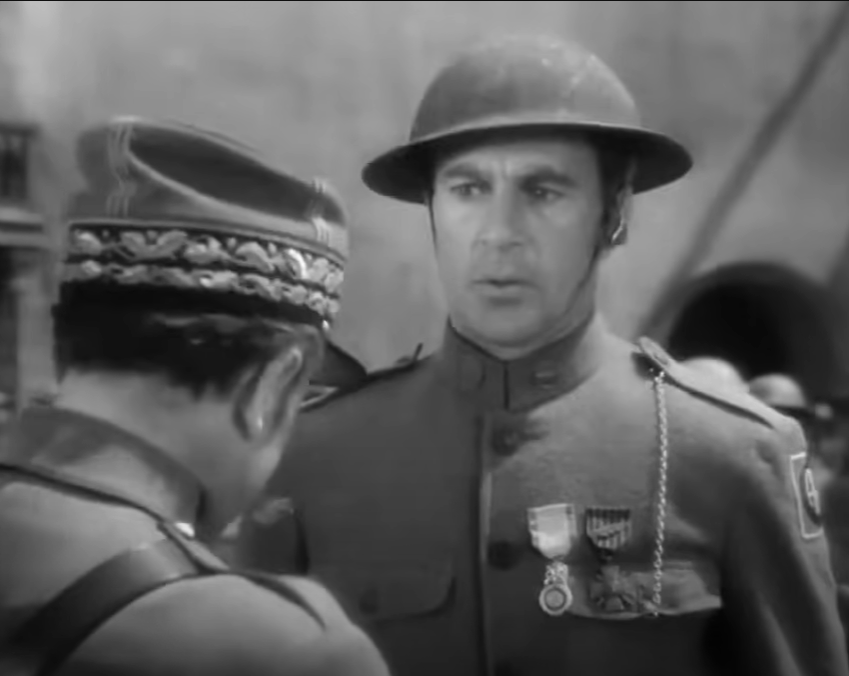 Warner Bros., Sergeant York (1941)
Warner Bros., Sergeant York (1941)
30. His Exploits Were Almost Missed
It is not uncommon for the exploits of battle to go unnoticed by those back home. This was almost the case for York. It wasn’t until April 1919 that America became aware of York’s heroism, thanks to a story in the Saturday Evening Post. George Pattullo painted York as a quintessential American, leaning into his simple background and unwavering faith. Pattullo made York a national hero in the eyes of his country.
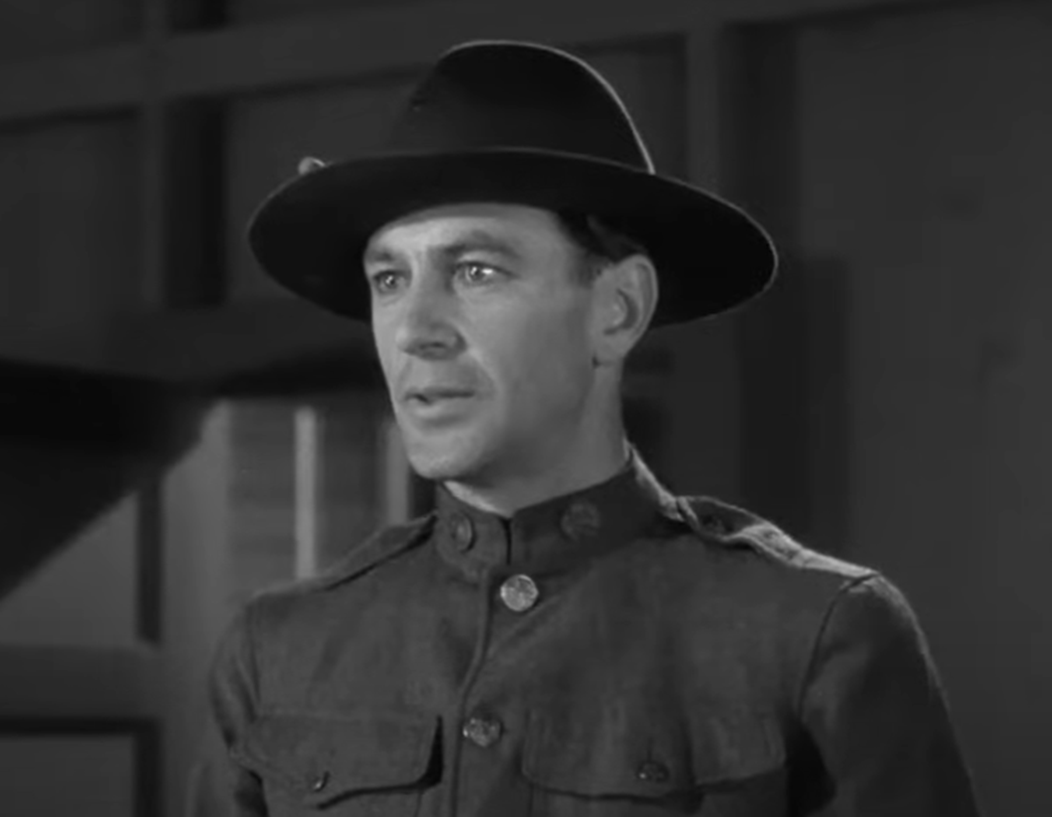 Warner Bros., Sergeant York (1941)
Warner Bros., Sergeant York (1941)
31. He Was Celebrated
Thanks to Pattullo’s article, York returned to the United States to much fanfare. He was greeted by a group of Tennesseans living in New York, who arranged for a five-day celebration that included touring New York and Washington. York stayed at the Waldorf Astoria, had a banquet in his honor, and met the President’s secretary, as the president was not in the country. However, York didn’t want any of it.
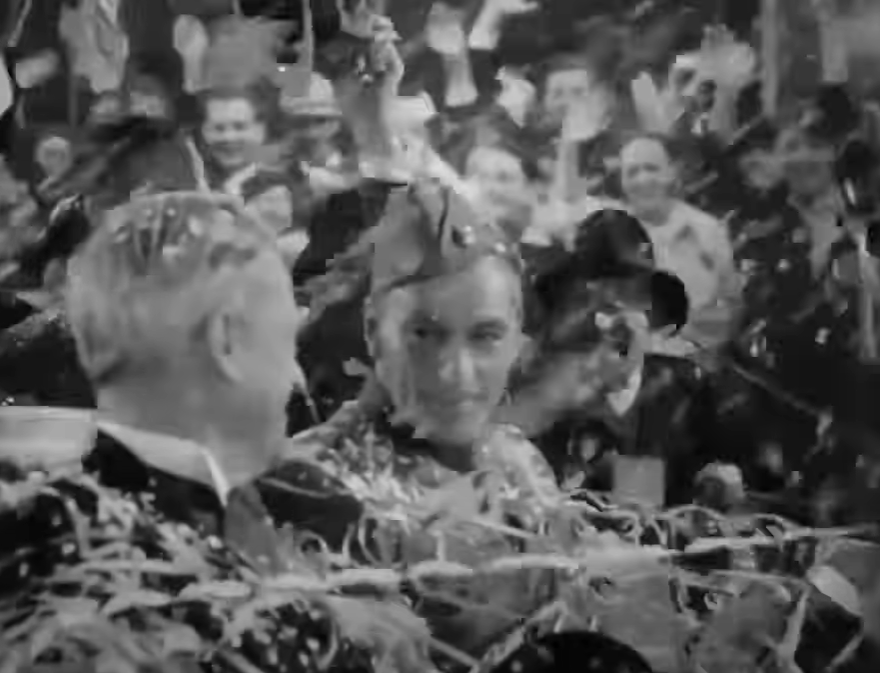 Warner Bros., Sergeant York (1941)
Warner Bros., Sergeant York (1941)
32. He Wanted A Quiet Life
The people of the United States attempted to offer York the world upon his return. However, it seemed that York wanted little beyond the simple life that he would have had if he hadn’t left at all. His superiors discharged him from service, and he immediately returned home to marry his sweetheart, Gracie Loretta Williams. However, there is one thing York did accept.
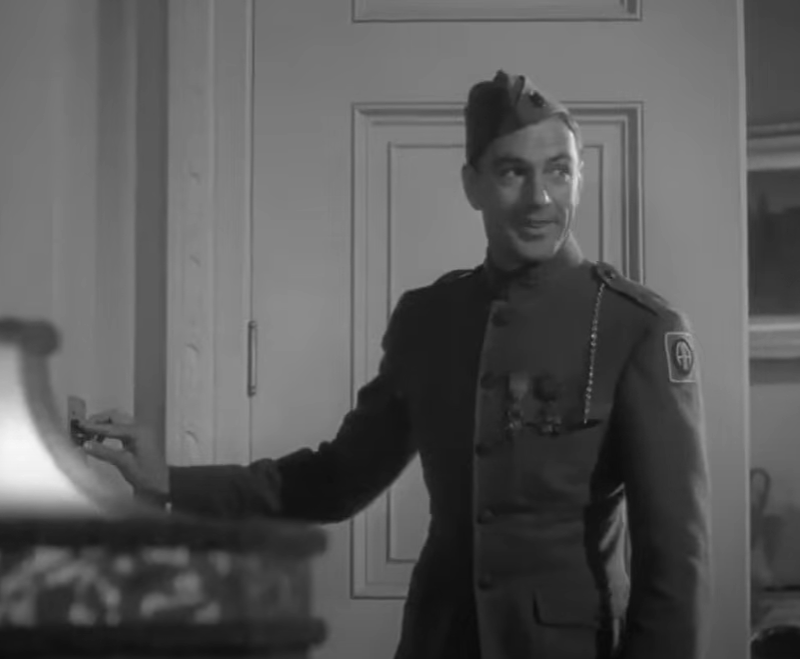 Warner Bros., Sergeant York (1941)
Warner Bros., Sergeant York (1941)
33. He Accepted A Gift
Despite many offers otherwise, York did not seem to want to profit off of his sudden fame. The only gift that he did accept was a 400-acre farm. The Nashville Rotary gifted the farm, which had been purchased by public subscription on York’s behalf. However, it wasn’t quite what they’d promised York.
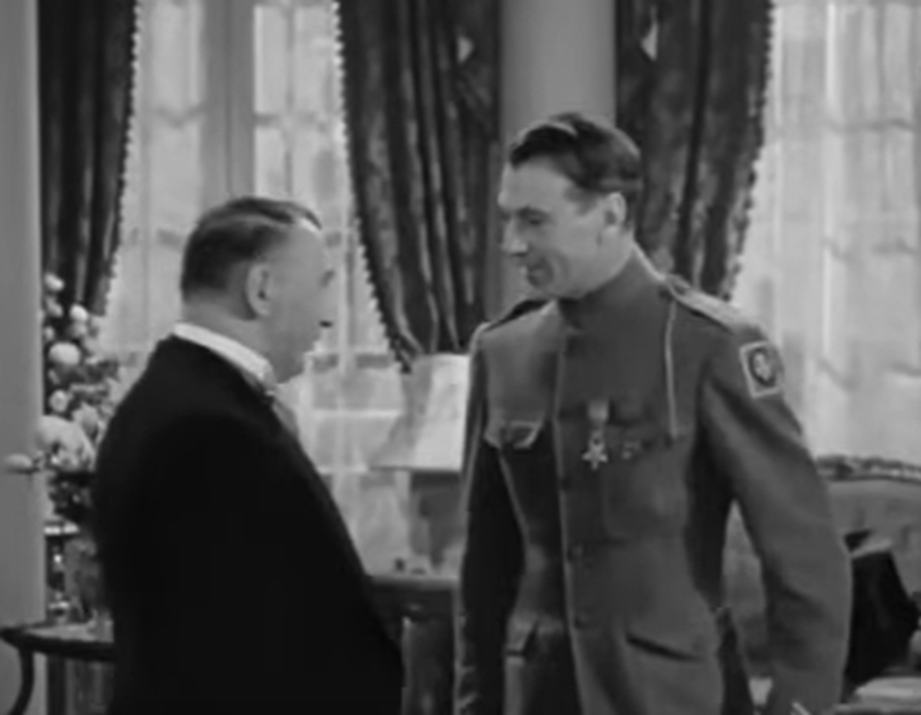 Warner Bros., Sergeant York (1941)
Warner Bros., Sergeant York (1941)
34. His Gift Didn’t Pan Out
When York had accepted the gift, he had been under the impression that he would be receiving a farm that was fully equipped and functional. That was not the case. Having refused all of the promises of money, York had to borrow the money to stock the farm. He ended up losing money on the one gift that he accepted, and things were only going to get worse.
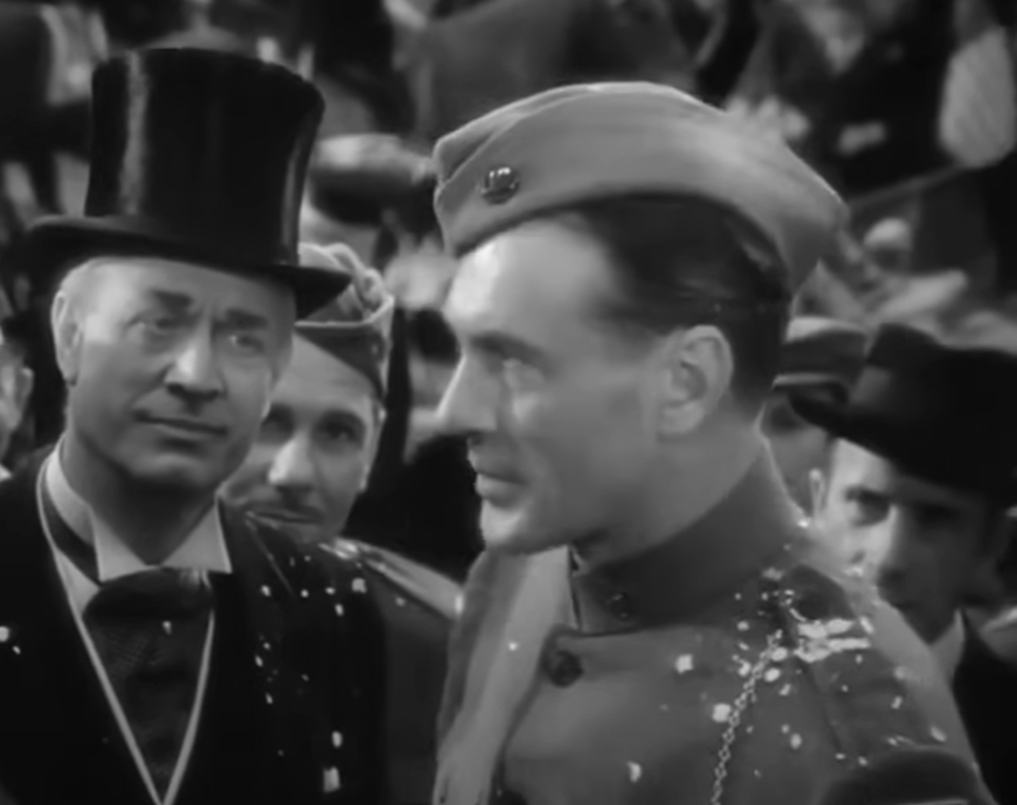 Warner Bros., Sergeant York (1941)
Warner Bros., Sergeant York (1941)
35. He Bit Off More Than He Could Chew
It made sense that York had accepted the offer of a farm. Growing up as he had, farming was all that he had known. However, following WWI, there was a significant decrease in farming, which lost York money. To make matters worse, the Rotary had bitten off more than they could chew. When they couldn’t continue to finance the installments for the farm, York had to pay for it himself. However, he didn’t have the money.
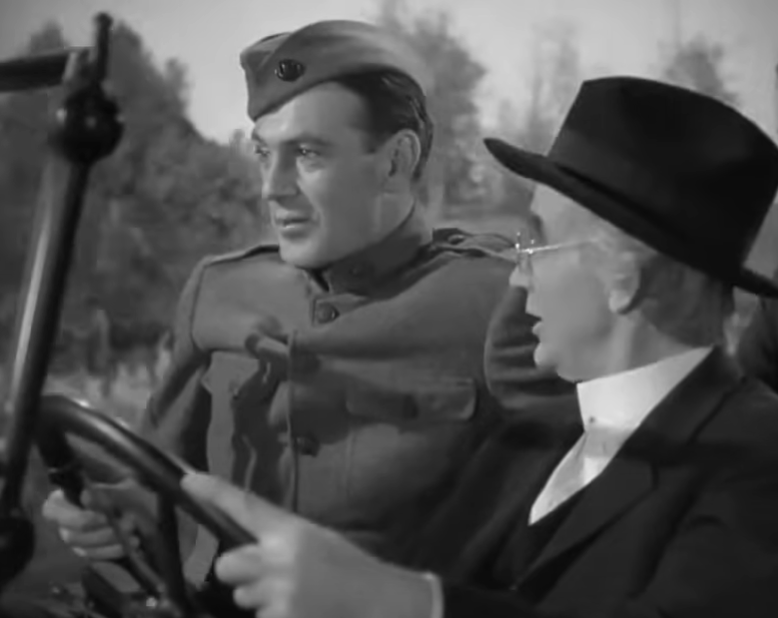 Warner Bros., Sergeant York (1941)
Warner Bros., Sergeant York (1941)
36. He Wasn’t Built For Fame
York was now in a difficult position. He had wanted to return to the quiet life that he had known. Yet, that life had come with debt and struggle. He had to plead with the public for help, which only drew attention to his financial situation. York struggled with the scrutiny. He was built for a different world than the one that he found himself in.
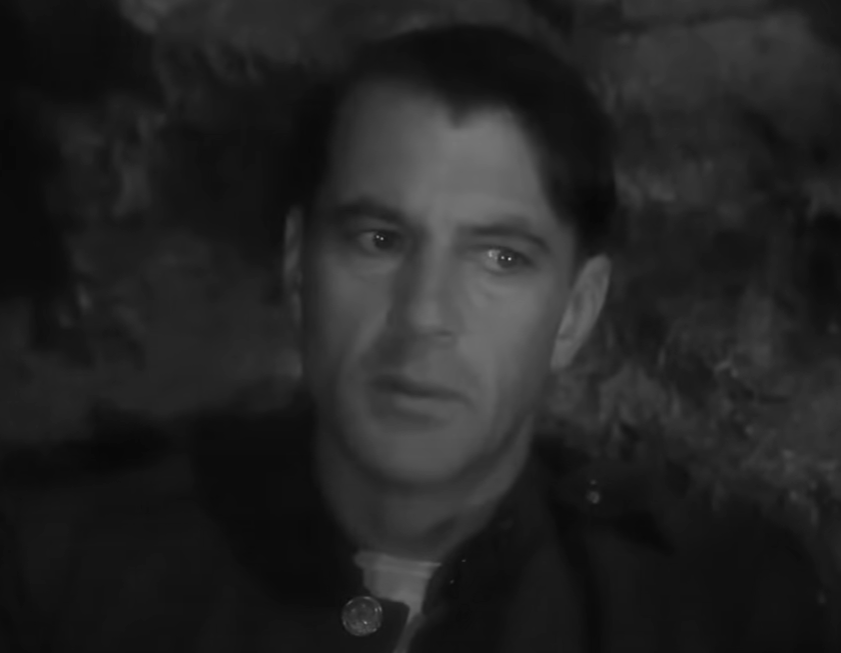 Warner Bros., Sergeant York (1941)
Warner Bros., Sergeant York (1941)
37. He Went Into Debt
Before the conflict, York had lived a life that he understood. After the conflict, he had been thrust into unfamiliar territory. He didn’t know how to handle the debt that he found himself in. He said, “I could get used to almost any kind of hardship, but I'm not fitted for the hardship of owing money”. Thankfully, the public stepped in. By Christmas 1921, York had gotten the funds to settle the matter of his farm. Though, he never ceased to be a public figure.
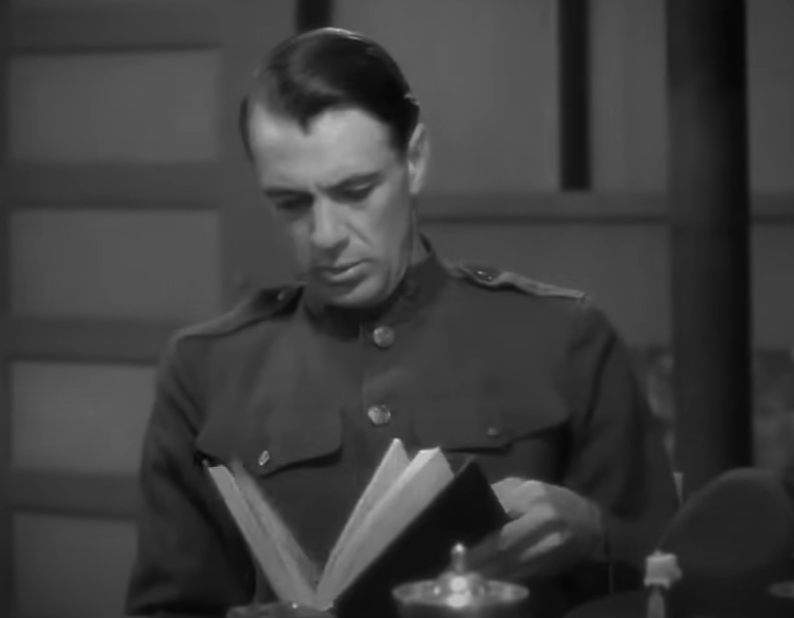 Warner Bros., Sergeant York (1941)
Warner Bros., Sergeant York (1941)
38. He Helped His Community
York did not wish to profit from his fame, but that did not stop him from putting his fame to good use. What York seemed most passionate about was creating a better life for those who came from the same area of Tennessee that he did. He created the Alvin C York Foundation to help develop educational opportunities for his fellow Tennesseans.
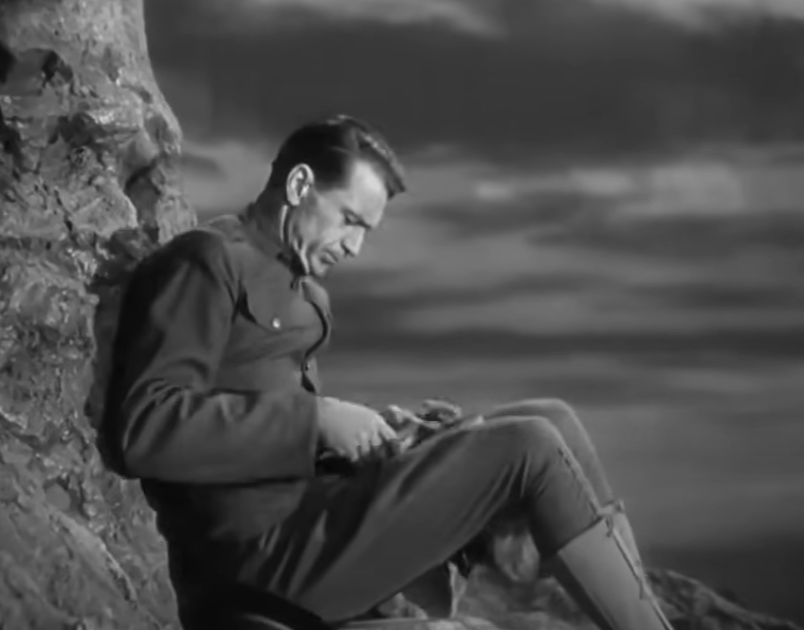 Warner Bros., Sergeant York (1941)
Warner Bros., Sergeant York (1941)
39. He Avoided The Conflict
It was for this organization that York was willing to step into the role his fame created. He would travel to petition for funds from various groups and people. However, he often left his crowds disappointed. They wanted to hear about the conflict. Instead, York said, “I'm trying to forget the war in the interest of the mountain boys and girls that I grew up among”. York may have forgotten about the conflict, but other people hadn’t.
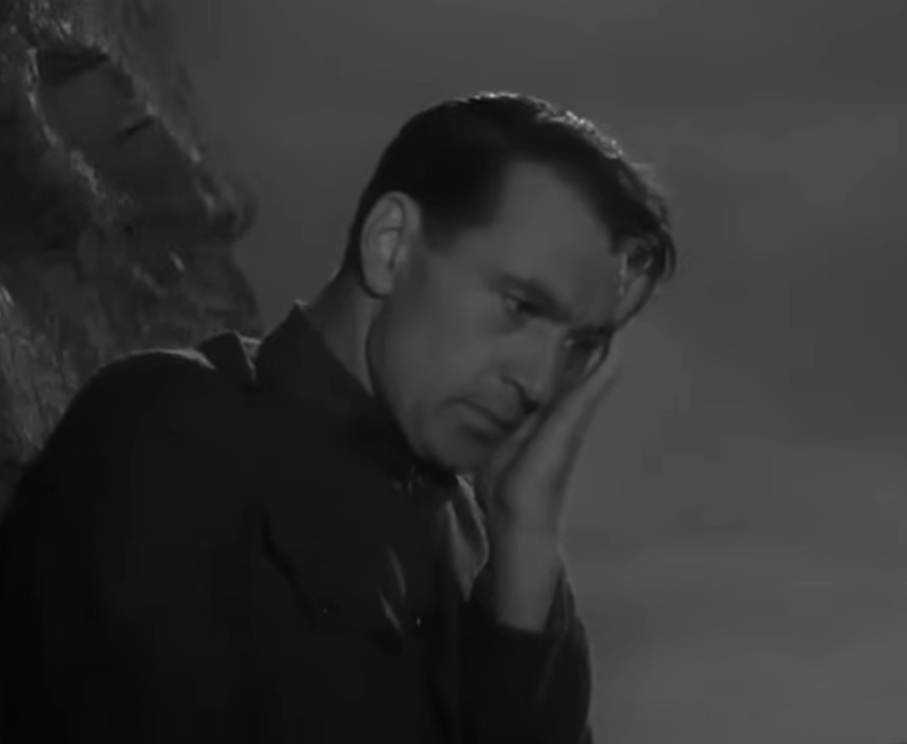 Warner Bros., Sergeant York (1941)
Warner Bros., Sergeant York (1941)
40. He Was Caught In Controversy
York found himself at the center of controversy in 1928, in the most unlikely of places: Germany. A Swedish journal put out an article that described York’s adventures back in October 1918. The Germans felt it tarnished the image of the German forces, and as a result, they launched their own investigation. They had some interesting findings.
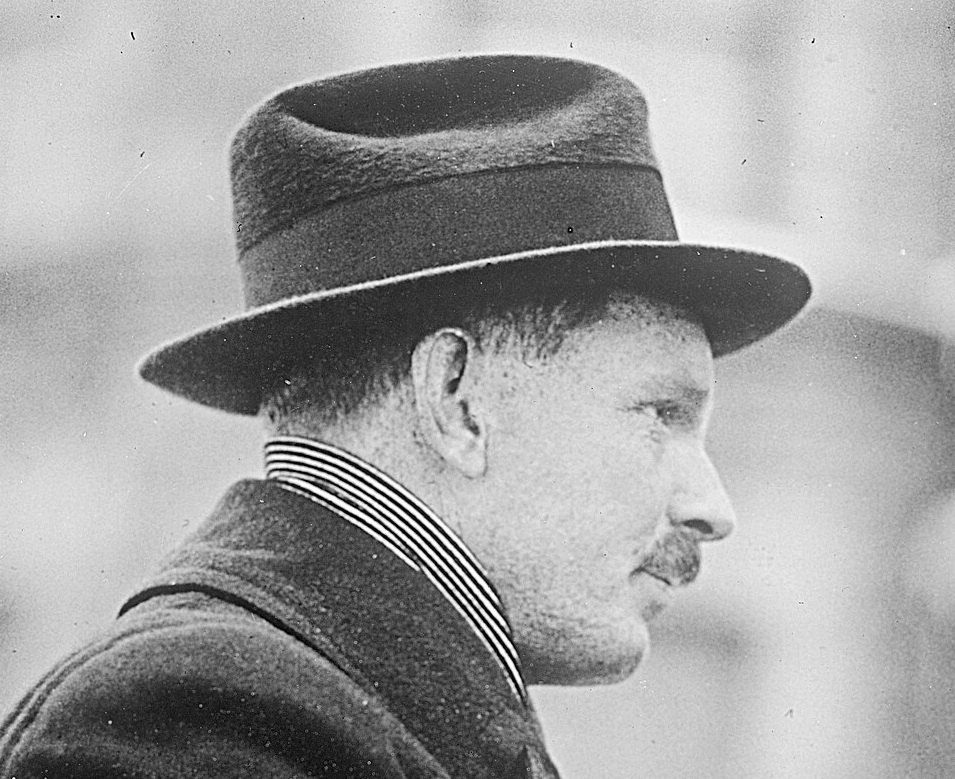 Bain News Service, Wikimedia Commons
Bain News Service, Wikimedia Commons
41. He Was Questioned Again
Up until this point, the story of York’s adventures had been told by the Americans. The German officials interviewed surviving German officers who had fought against York. For the most part, they concluded that the US report corresponded with the facts. However, they did suggest the American report exaggerated the claim of 132 prisoners and 35 machine guns. It seemed possible these claims could affect York’s awards.
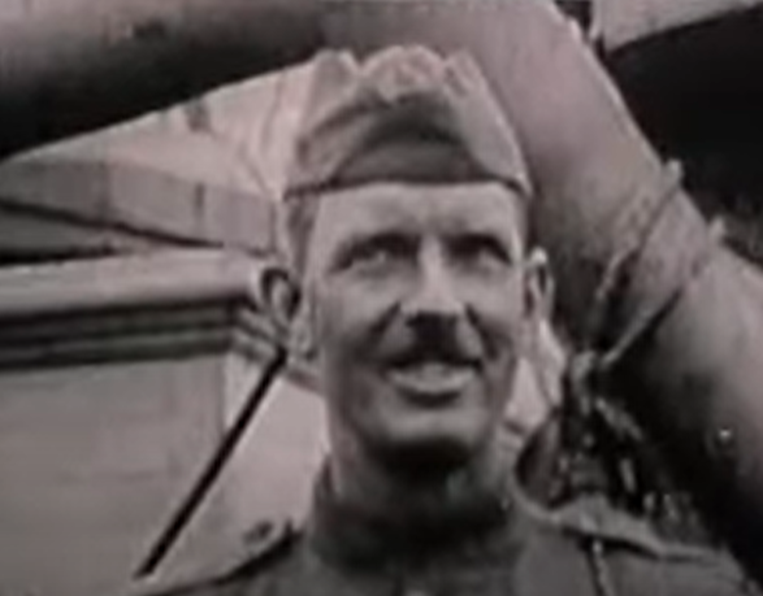 SGT YORK 1919 NEWSREEL, FilmArchivesNYC
SGT YORK 1919 NEWSREEL, FilmArchivesNYC
42. His Exploits Were Exaggerated
It seemed possible that the Germans’ findings might call into question York’s Medal of Honor. After all, there had been questions at the time of his heroic feat. However, after review, it was found that the German report did not contradict the details of the US Army's report and in fact, confirmed York's leadership and skill in battle—even if alleging that his heroism was a bit exaggerated. According to the Germans, he captured 79 prisoners—still an impressive accomplishment. York remained a hero, and the American public still wanted to hear from him.
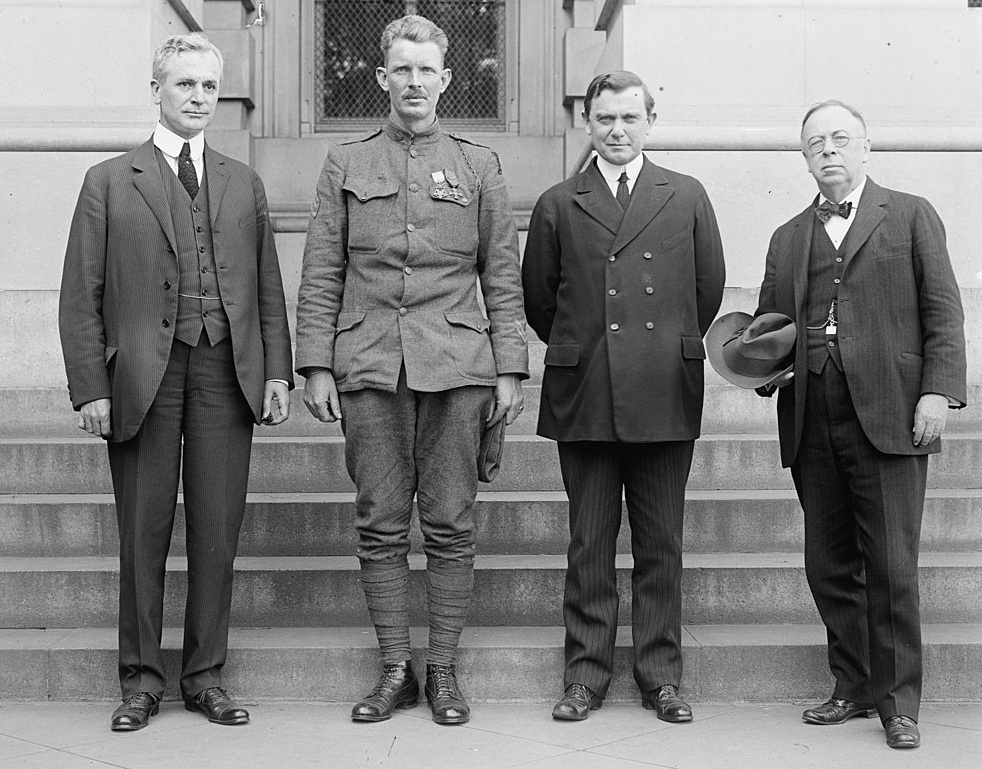 Harris & Ewing, photographer, Wikimedia Commons
Harris & Ewing, photographer, Wikimedia Commons
43. He Sold His Story
Although York received many requests to share his story, he only agreed to do so a couple of times. He allowed journalist Sam Cowan to write a biography in 1922. It was a flat piece that did not do York justice. York would try to publish his diaries of the conflict a few years later, but he would not be able to do so without some help.
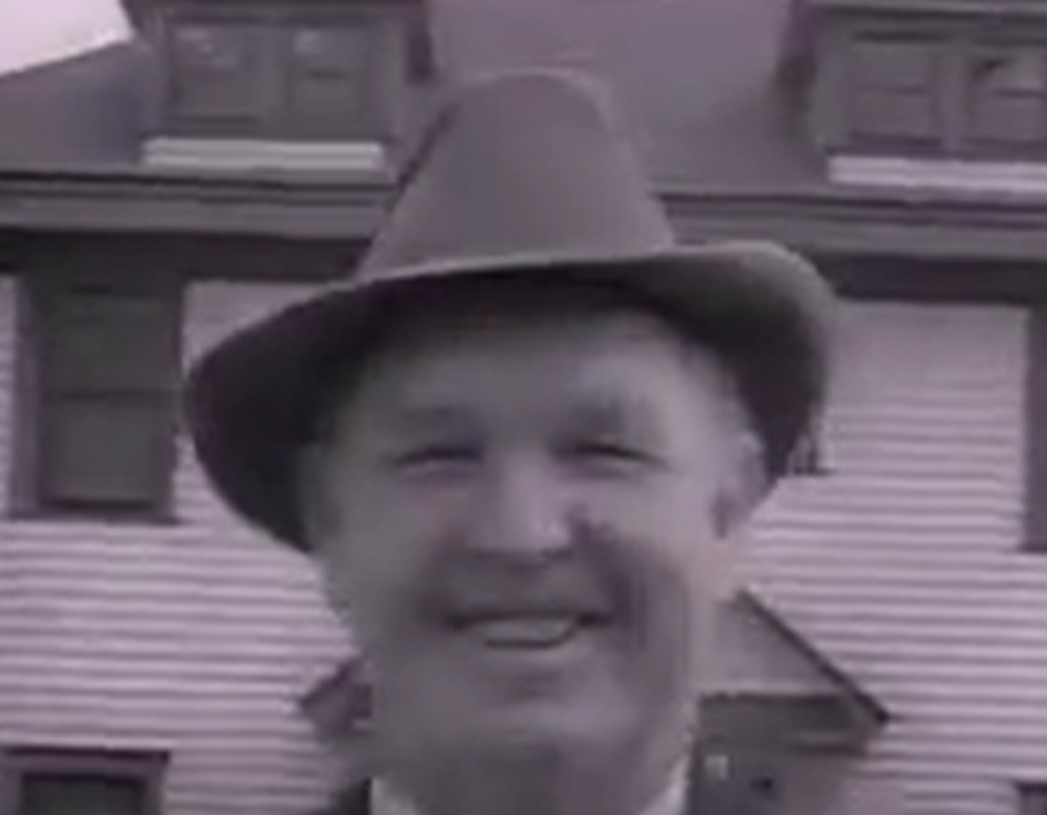 Sergeant York Famed WWI Hero Passes Away Newsreel www.PublicdDomainFootage.com, PublicDomainFootage
Sergeant York Famed WWI Hero Passes Away Newsreel www.PublicdDomainFootage.com, PublicDomainFootage
44. His Friends Supported Him
Sometime in the 1920s, York started an unlikely friendship with fellow veteran Tom Skeyhill. Skeyhill ghost wrote York’s “autobiography” on York’s behalf. The piece was written in first person, with Skeyhill taking credit as editor. It was well received, though Hollywood was growing during the 30s and 40s—the pictures were calling.
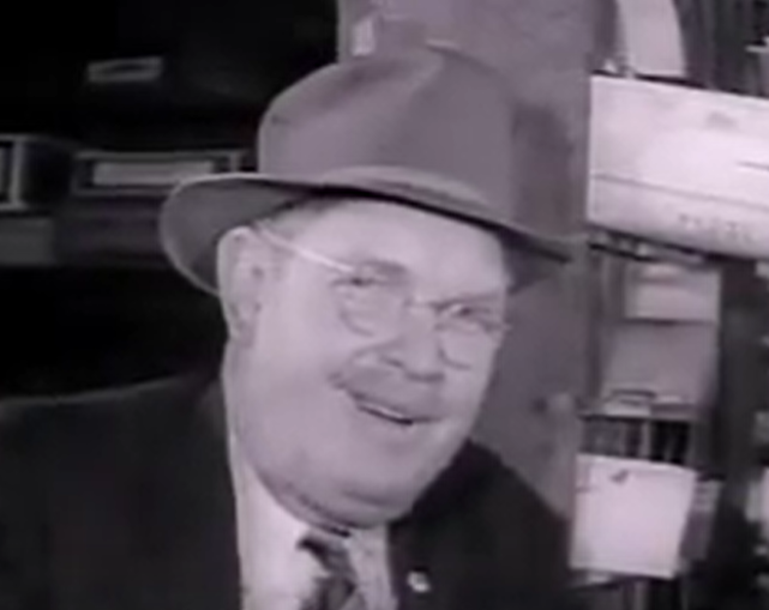 Sergeant York Famed WWI Hero Passes Away Newsreel www.PublicdDomainFootage.com, PublicDomainFootage
Sergeant York Famed WWI Hero Passes Away Newsreel www.PublicdDomainFootage.com, PublicDomainFootage
45. He Went To Hollywood
As the rise of moving pictures and Hollywood swept the nation, York received and rejected several offers to create a film of his story. However, in 1940, York had a project that he was passionate about—an interdenominational Bible school—and he needed funding for it. He gave into pressure, and authorized the use of his story for film, negotiating the contract himself. America was again fascinated with Alvin York.
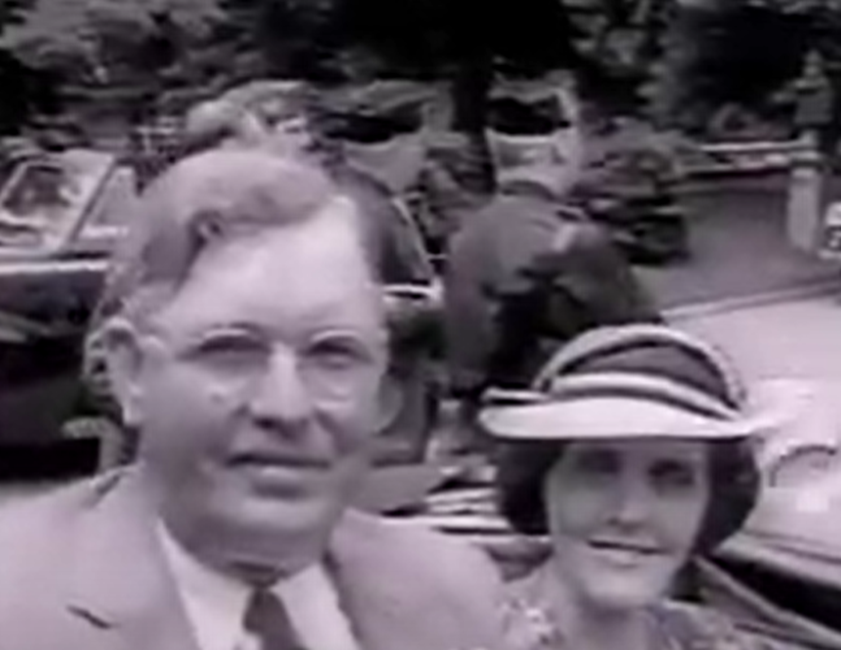 Sergeant York Famed WWI Hero Passes Away Newsreel www.PublicdDomainFootage.com, PublicDomainFootage
Sergeant York Famed WWI Hero Passes Away Newsreel www.PublicdDomainFootage.com, PublicDomainFootage
46. His Story Made Stars
After a year of filming, Sergeant York was released in 1941 to great fanfare. It was the highest grossing film of that year. Gary Cooper played York in the film, and his efforts won Cooper one of his two Academy Awards for Best Actor. In fact, the Academy nominated the film for 11 Oscars. The movie won for Best Film Editing, on top of Cooper’s win. It was a huge success and couldn’t come at a better time.
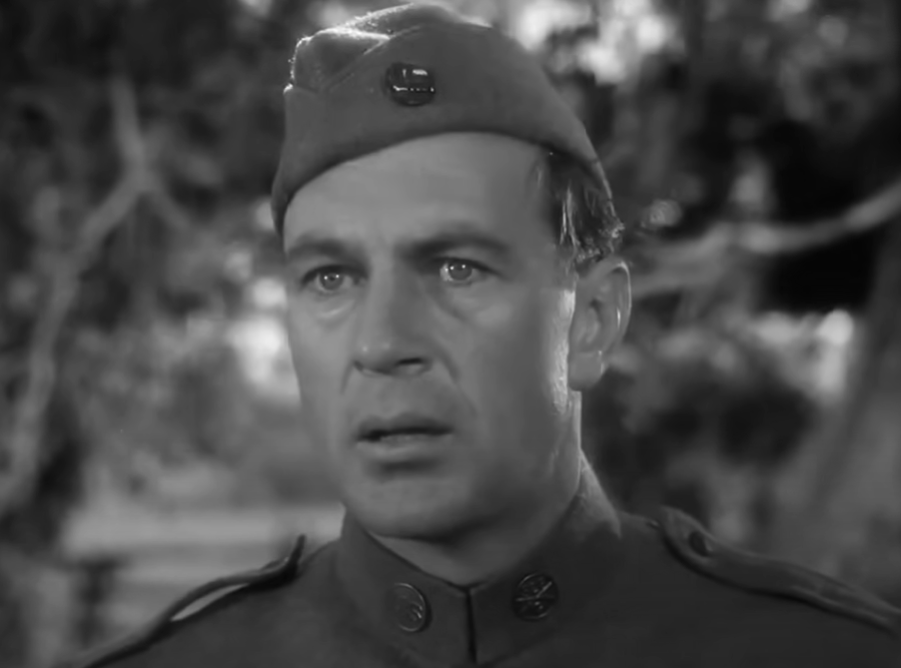 Warner Bros., Sergeant York (1941)
Warner Bros., Sergeant York (1941)
47. He Called For Conflict
By 1941, WWII had been raging for three years, and the world was begging for America to join. Many Americans did not wish to involve themselves; York was one of the few public figures who openly spoke out about joining up. York was so influential in speaking on this matter, President Roosevelt would often quote him. York made his biggest impact at one event in particular.
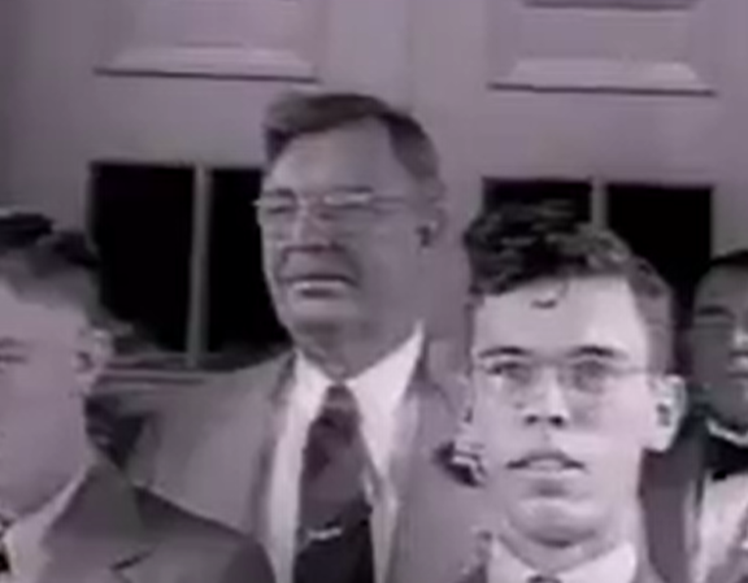 Sergeant York Famed WWI Hero Passes Away Newsreel www.PublicdDomainFootage.com, PublicDomainFootage
Sergeant York Famed WWI Hero Passes Away Newsreel www.PublicdDomainFootage.com, PublicDomainFootage
48. He Inspired Others
In May 1941, York took a stand, making a particularly moving speech at the Tomb of the Unknown Solider. He insisted that it was time for America to fight again, emphasizing that they could not compromise with Germany. He stated, “By our victory in the last war, we won a lease on liberty, not a deed to it”. He felt it was time they renewed their release on liberty. It would take until December before the American people listened.
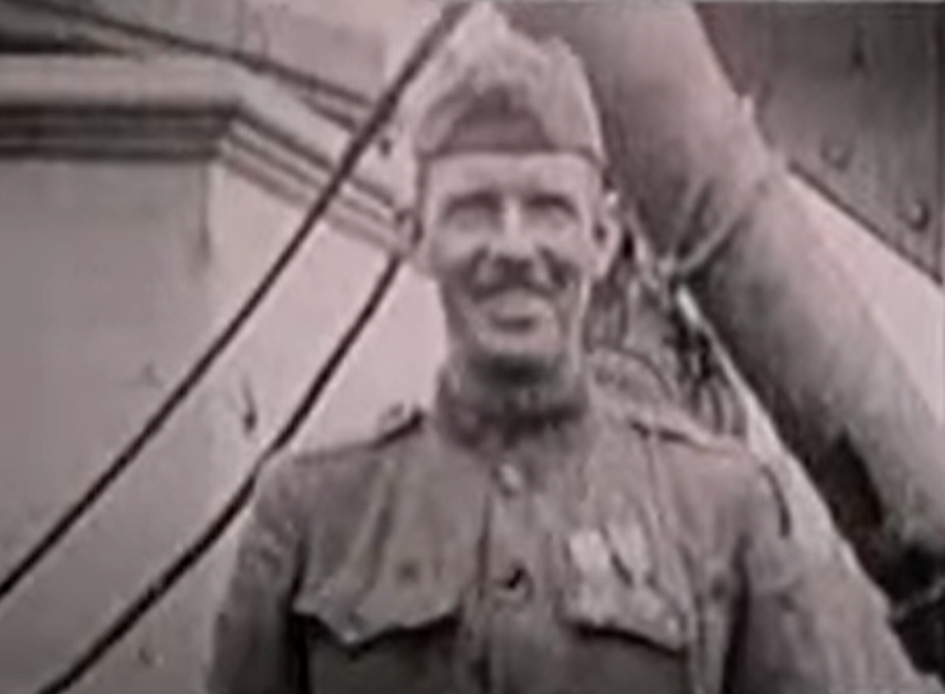 SGT YORK 1919 NEWSREEL, FilmArchivesNYC
SGT YORK 1919 NEWSREEL, FilmArchivesNYC
49. He Took A Back Seat
Once the US joined WWII, York attempted to reenlist. However, he was in his fifties and in no shape for battle. That didn’t mean he didn’t serve his country again. He helped with bond drives to finance the conflict and toured training camps in the Army Signal Corps, inspiring those he could see himself in. He remained “Sergeant York” in the hearts of Americans through WWII, and the rest of his life.
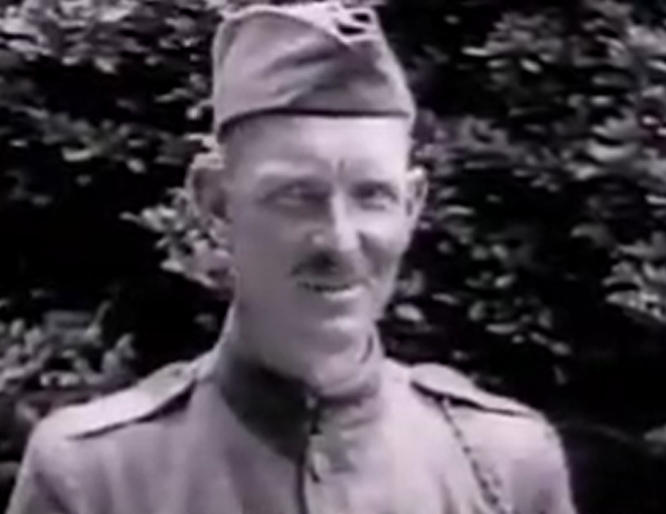 SGT YORK 1919 NEWSREEL, FilmArchivesNYC
SGT YORK 1919 NEWSREEL, FilmArchivesNYC
50. He Remains A Hero
The end of York’s life was far from glamourous. He suffered from many health problems, including several strokes from 1948 onwards. These and failing eyesight caused him to be bedridden from 1954 until he passed in 1964. However, that’s not what Americans remember him for. Sergeant York is remembered not just for the men he saved in Europe, but for the lives he changed back home.
You May Also Like:
The Forgotten Heroes Of World War I
The Forgotten Heroes Of World War II
The Untold Story Of The Deadliest Woman In WWII
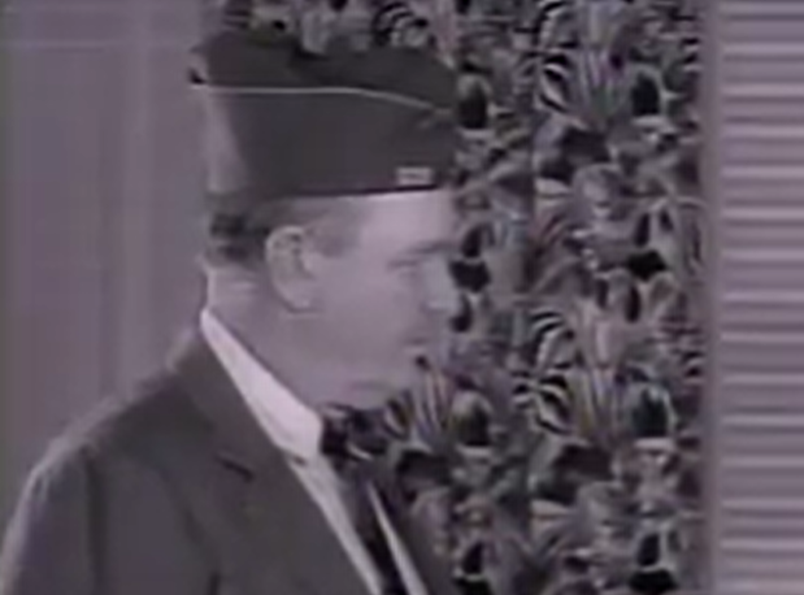 Sergeant York Famed WWI Hero Passes Away Newsreel www.PublicdDomainFootage.com, PublicDomainFootage
Sergeant York Famed WWI Hero Passes Away Newsreel www.PublicdDomainFootage.com, PublicDomainFootage

